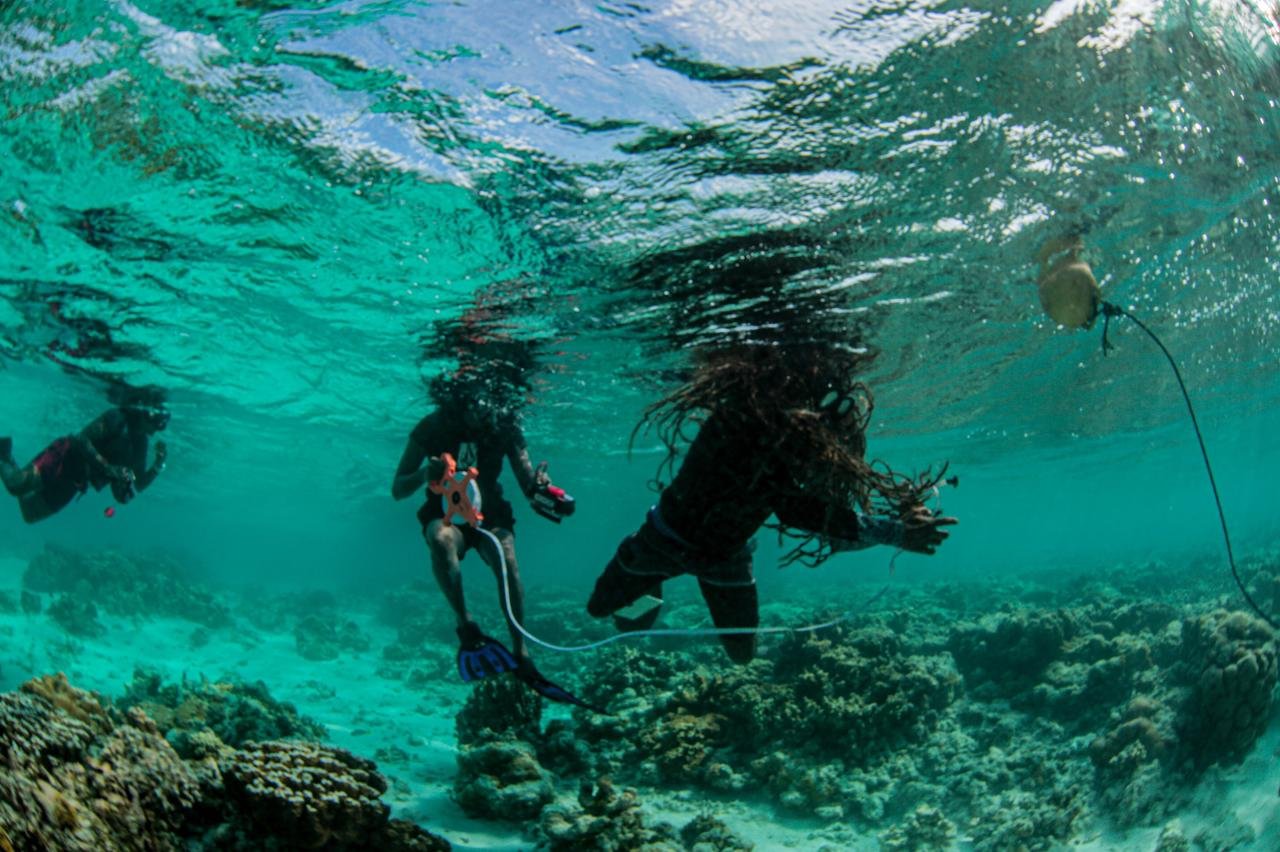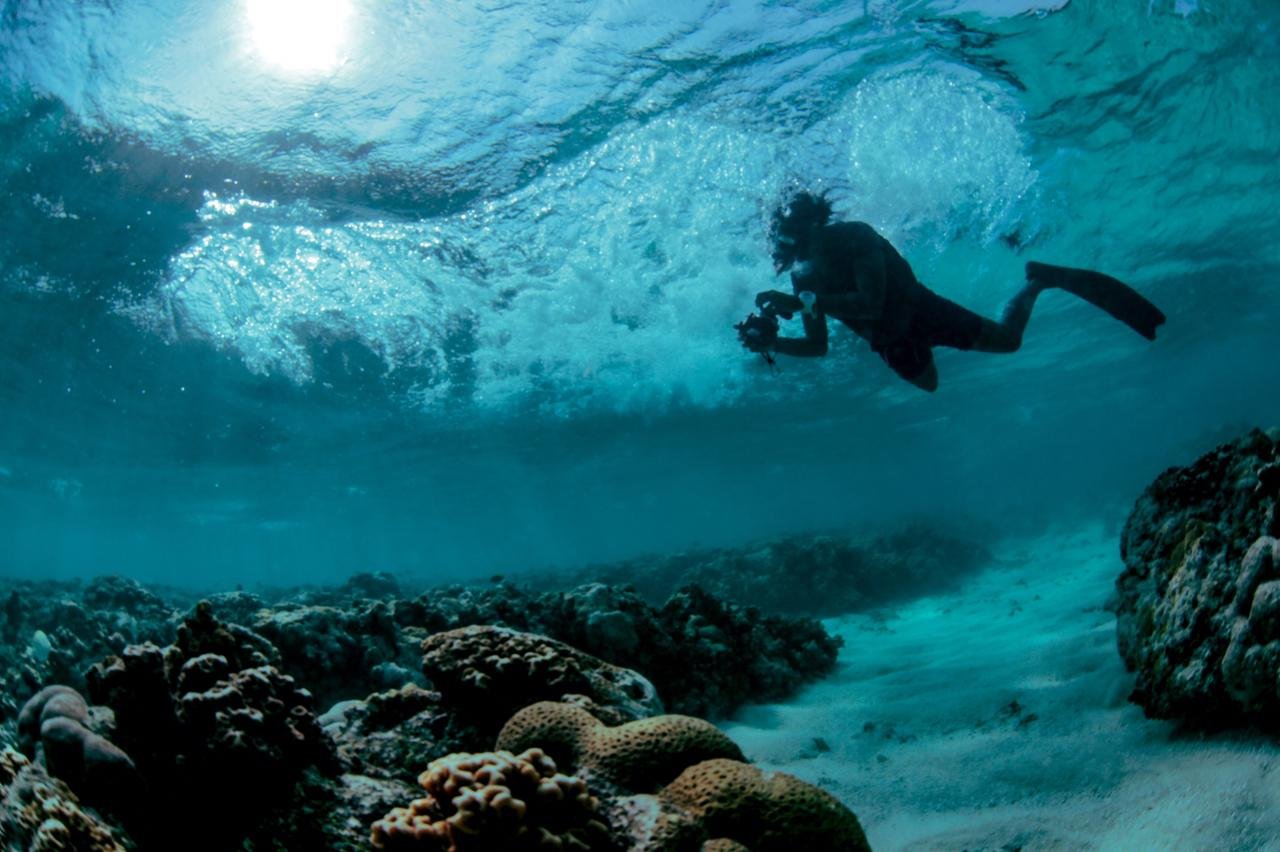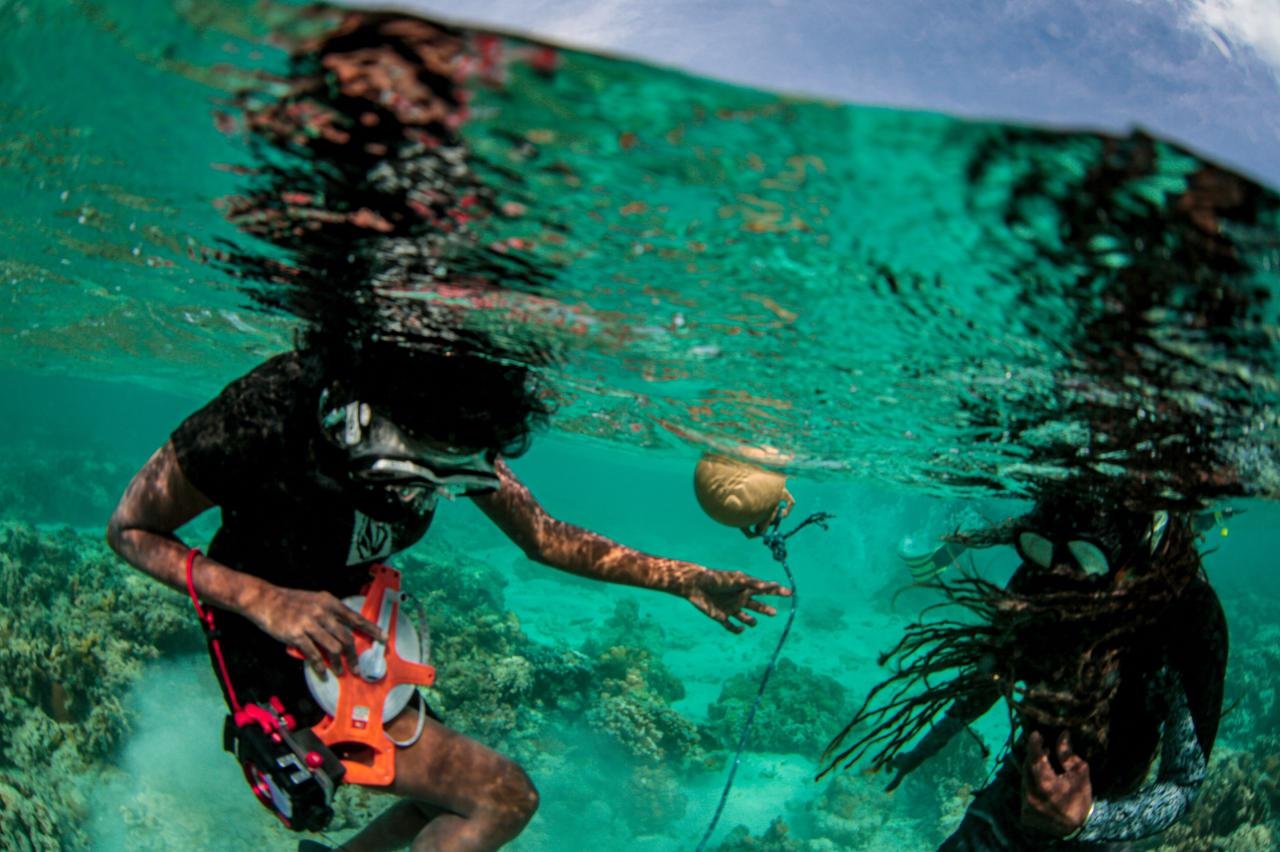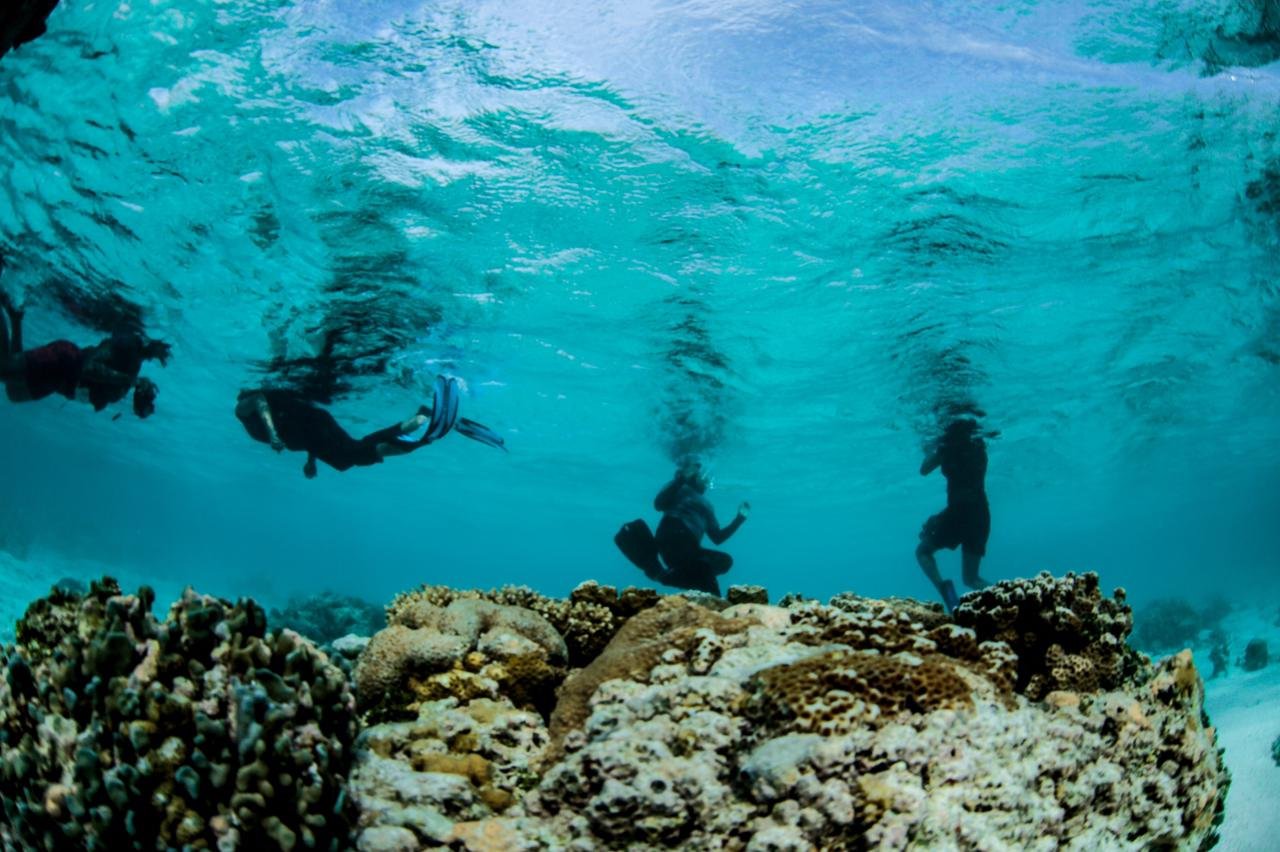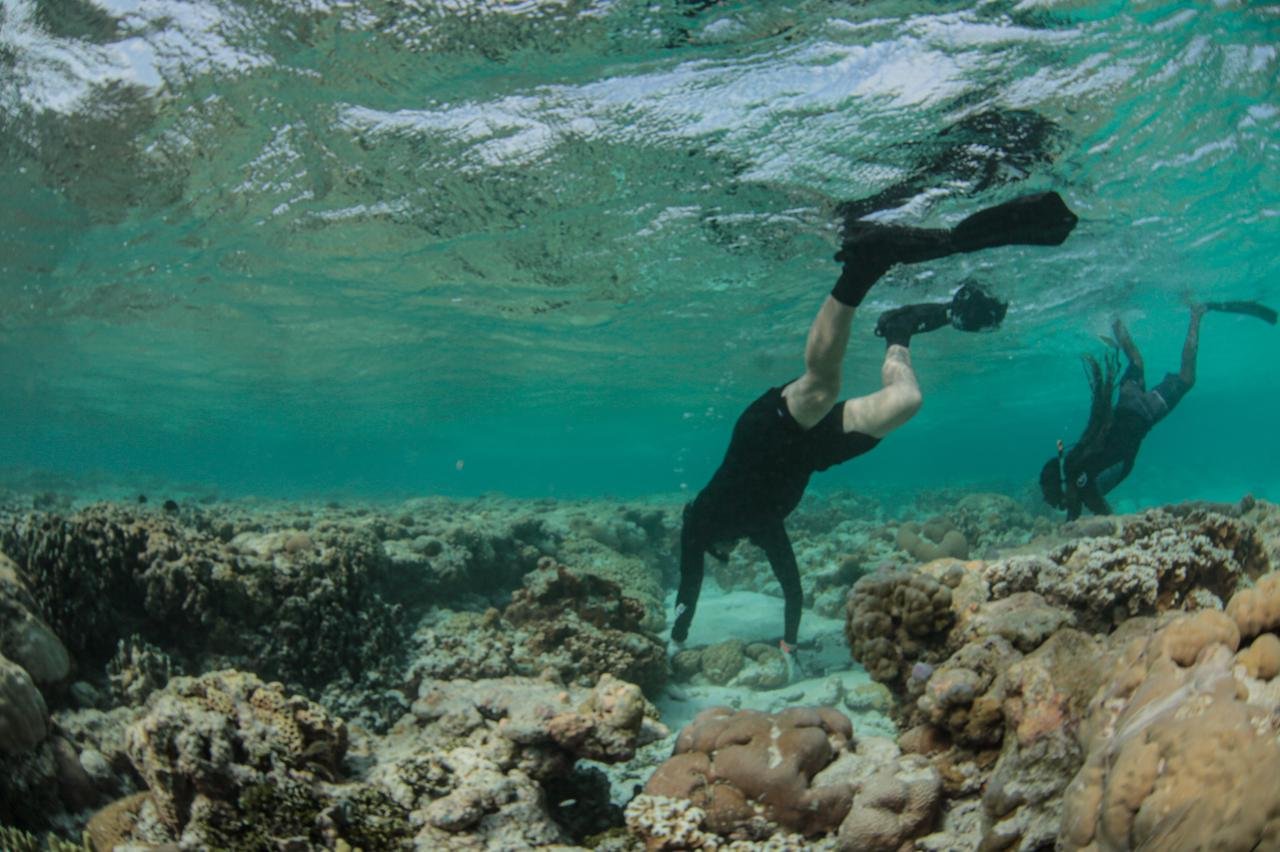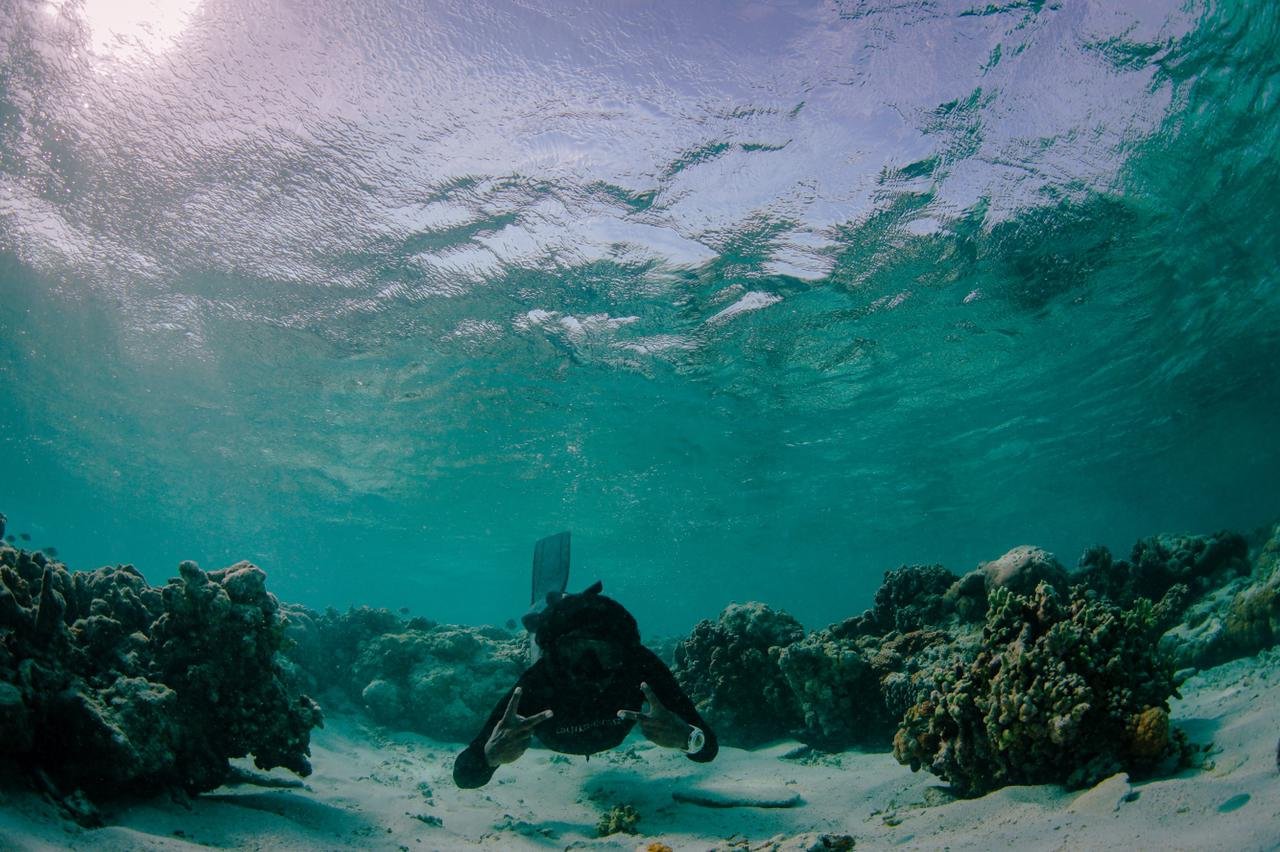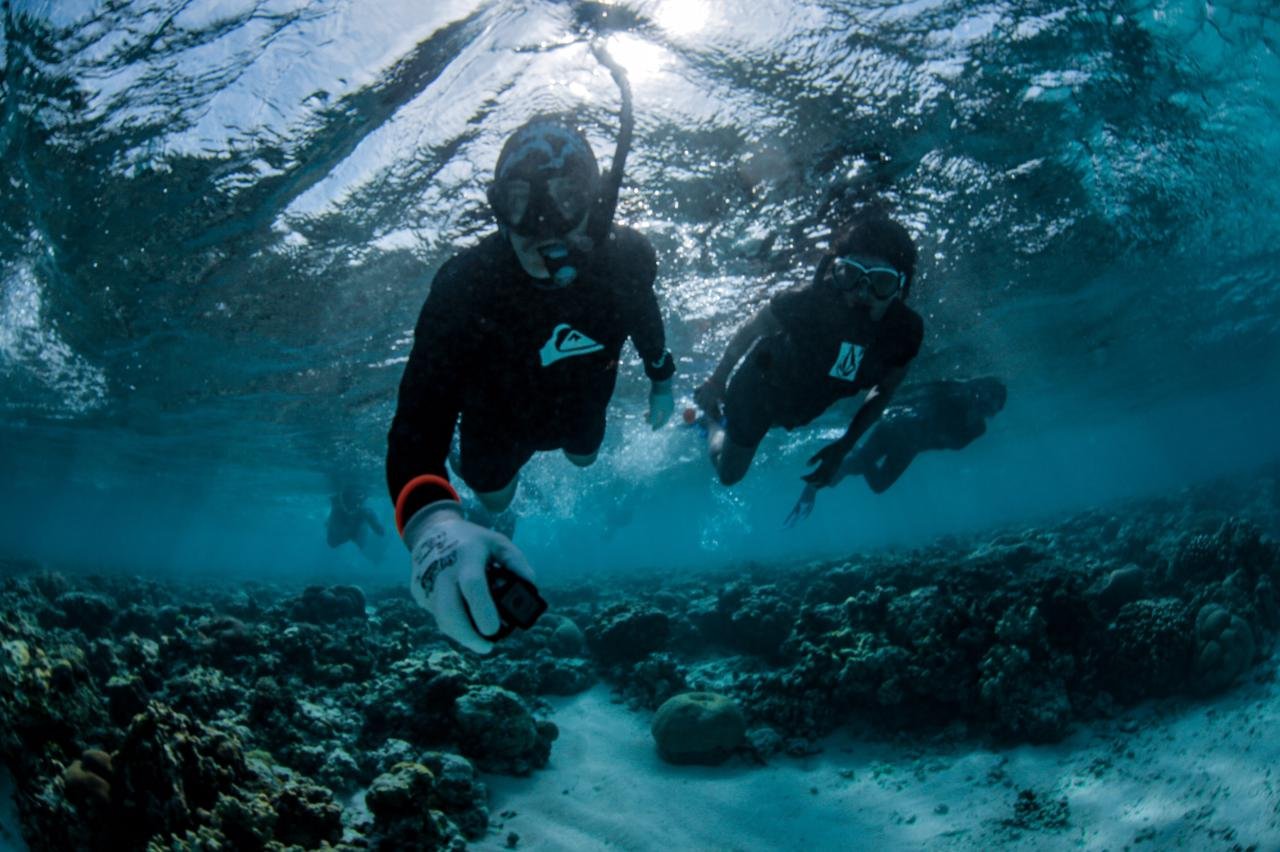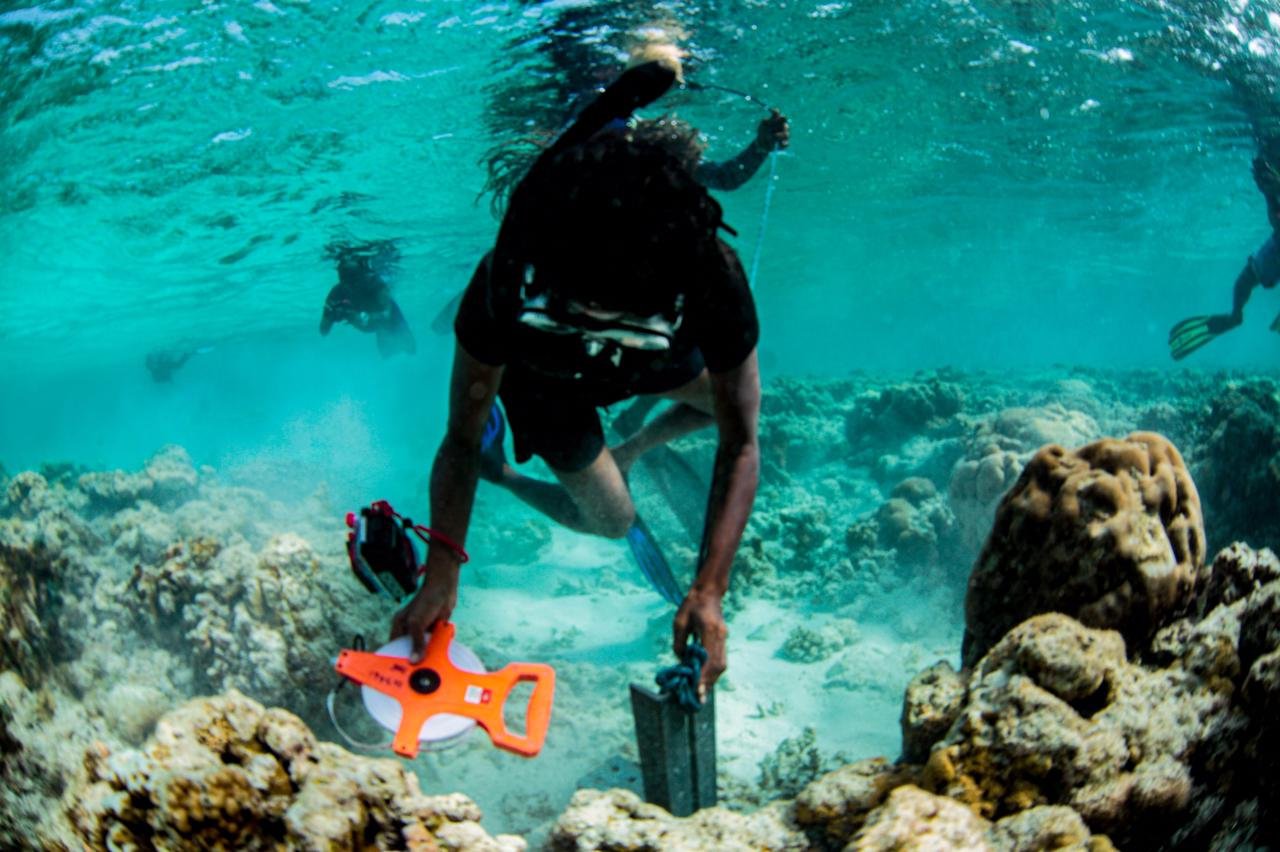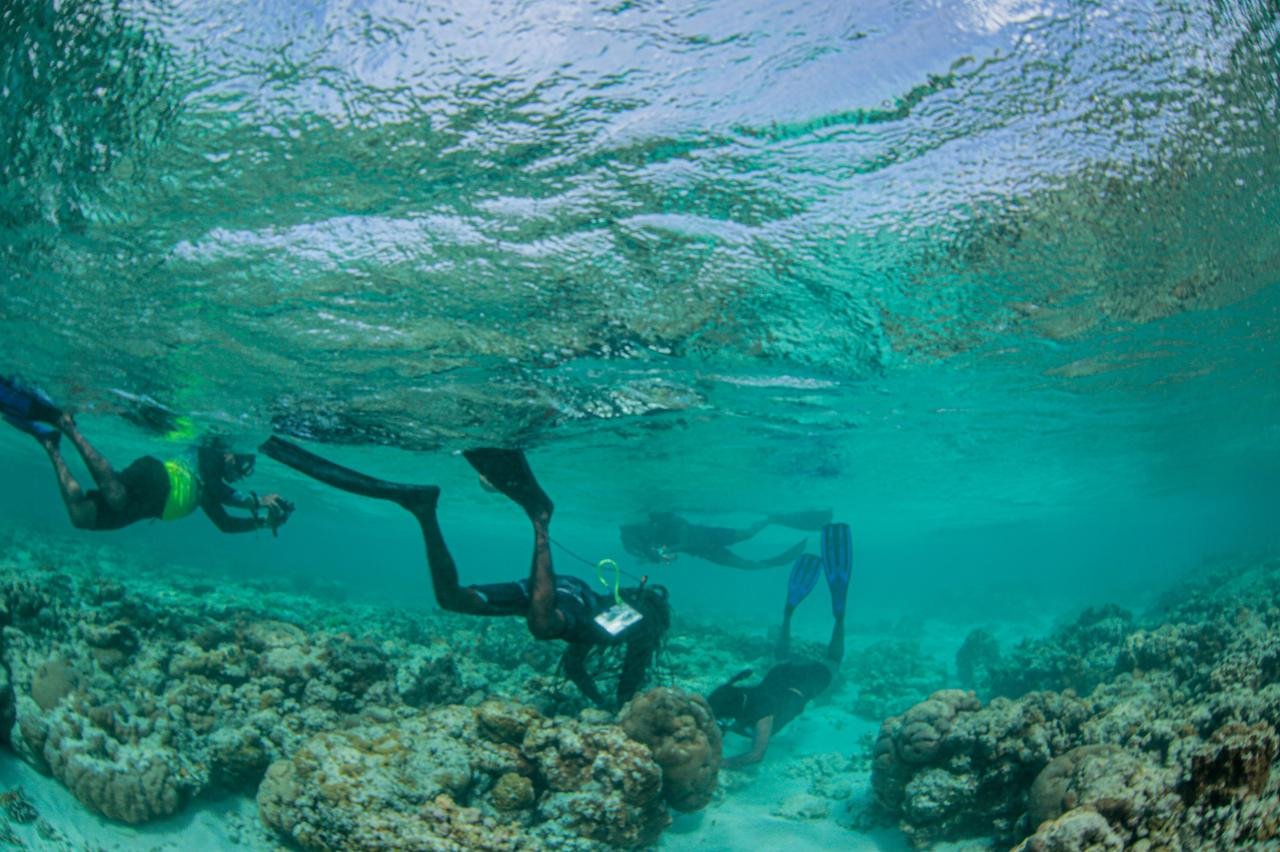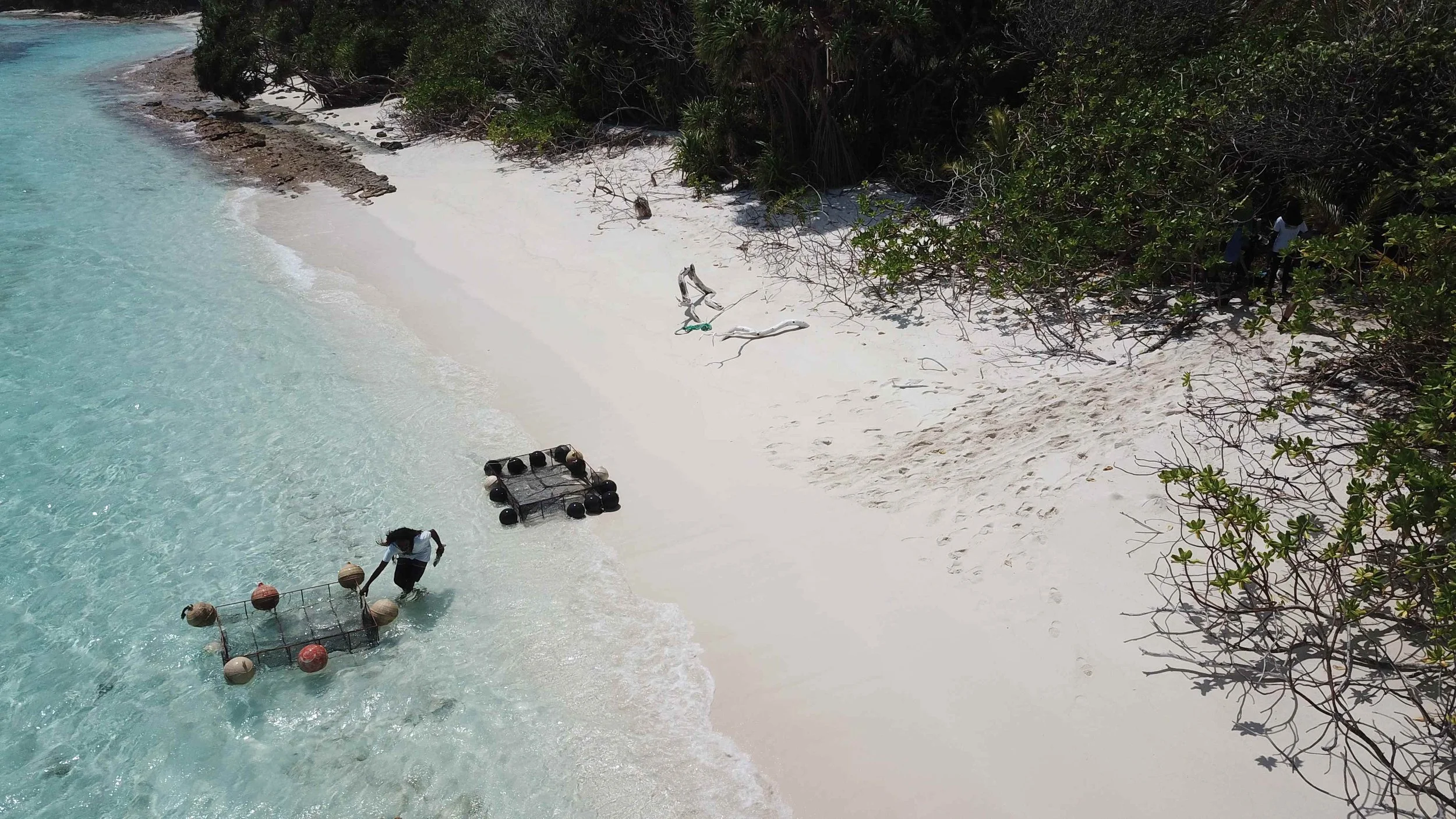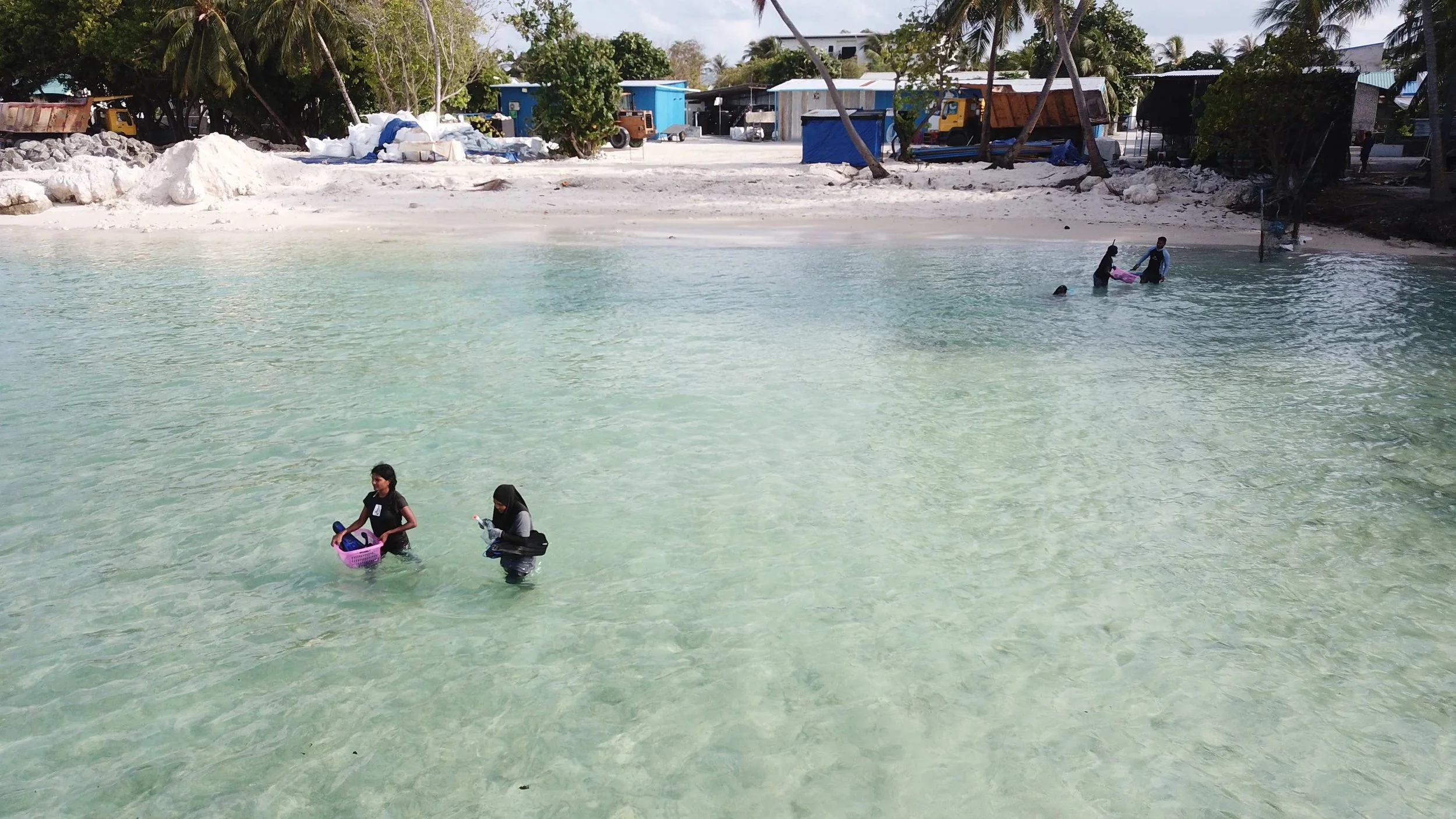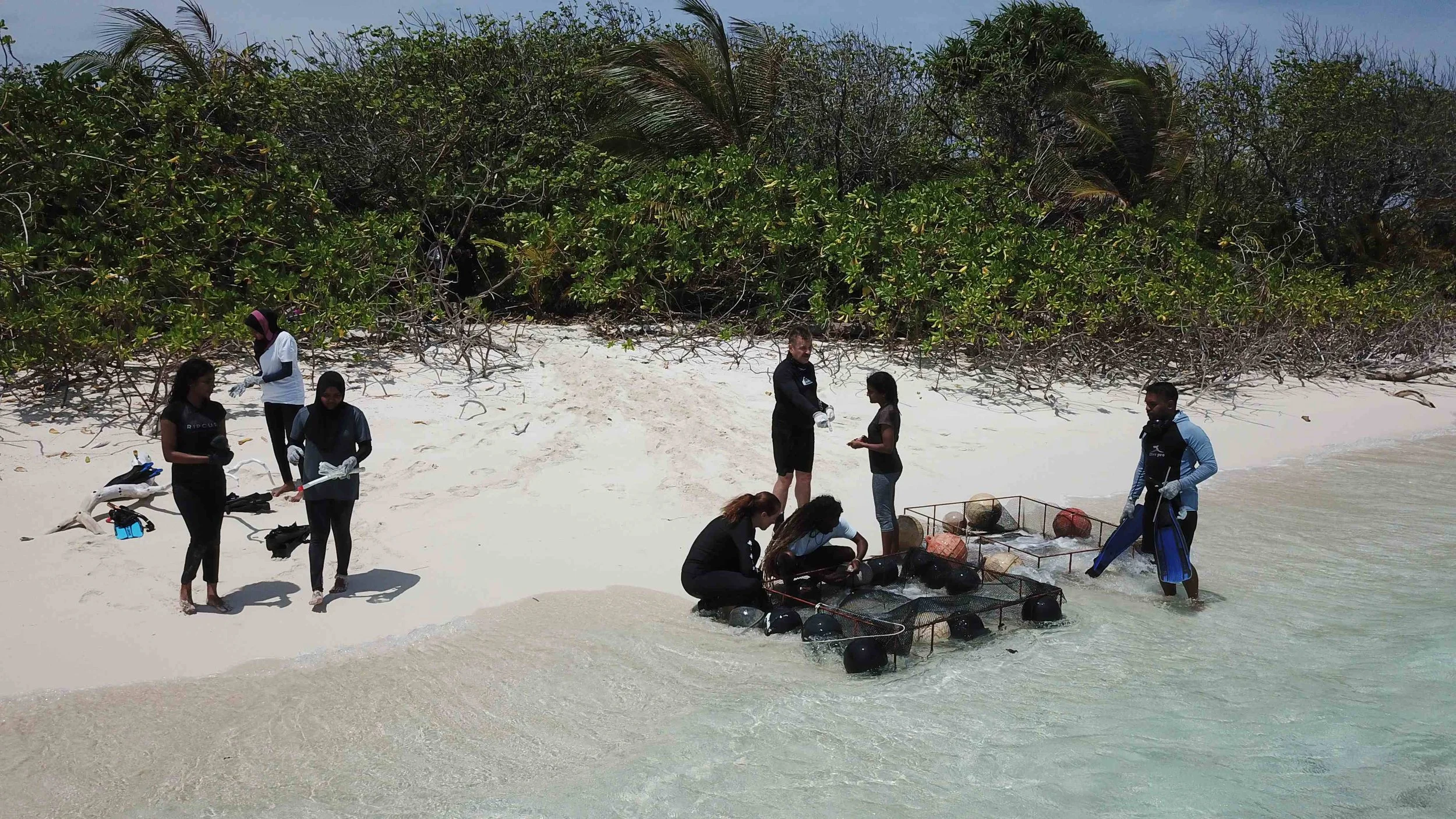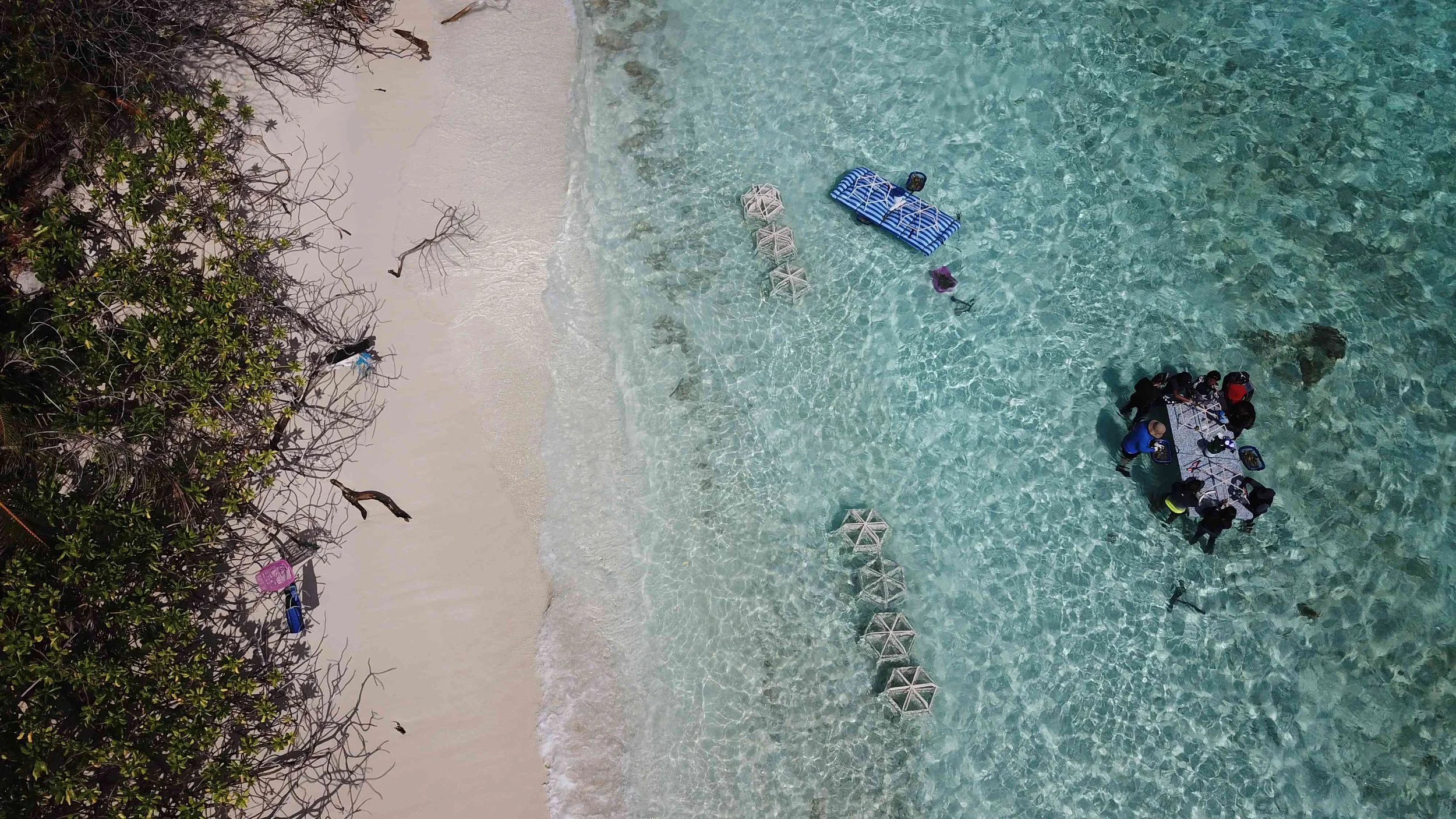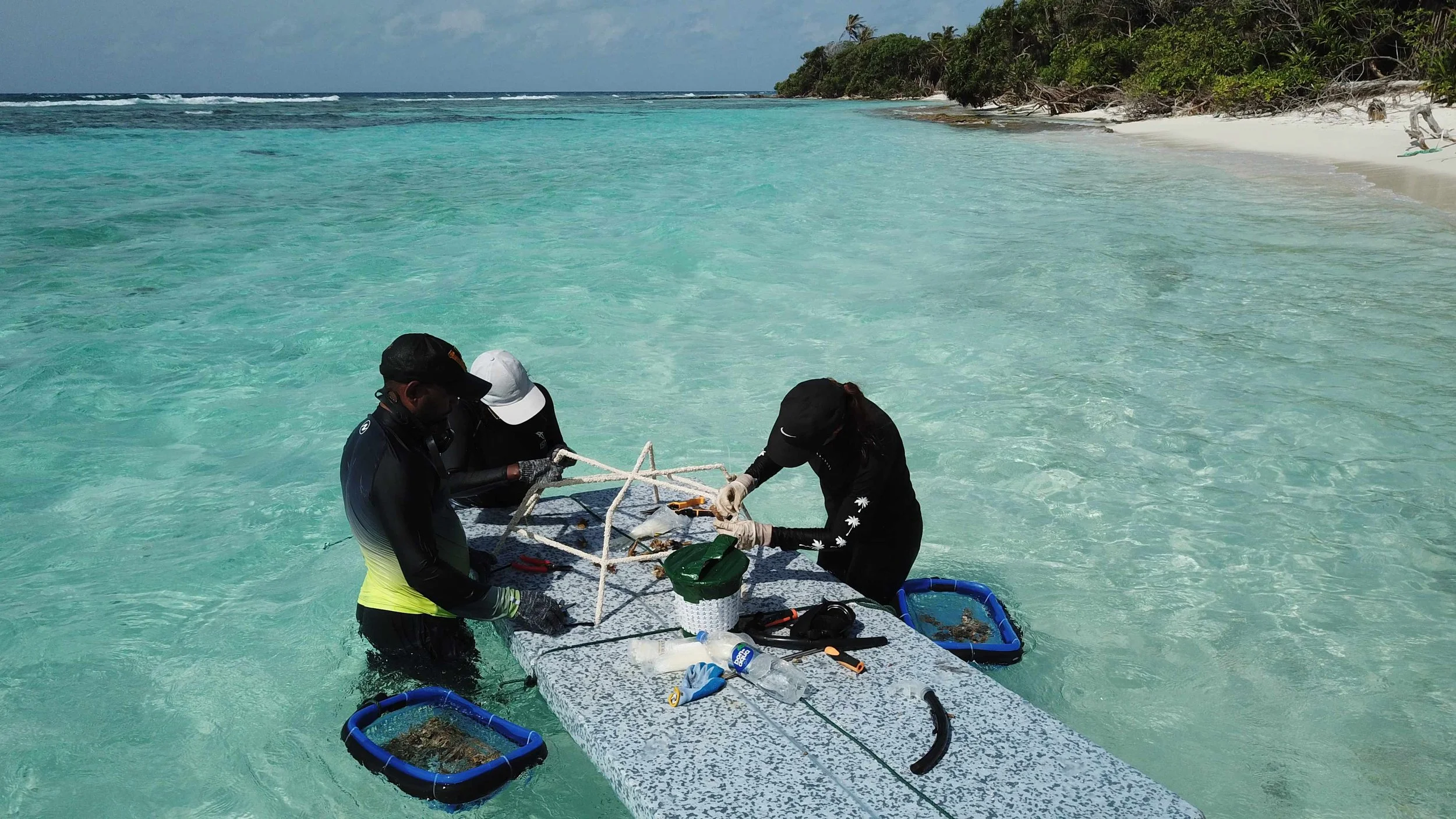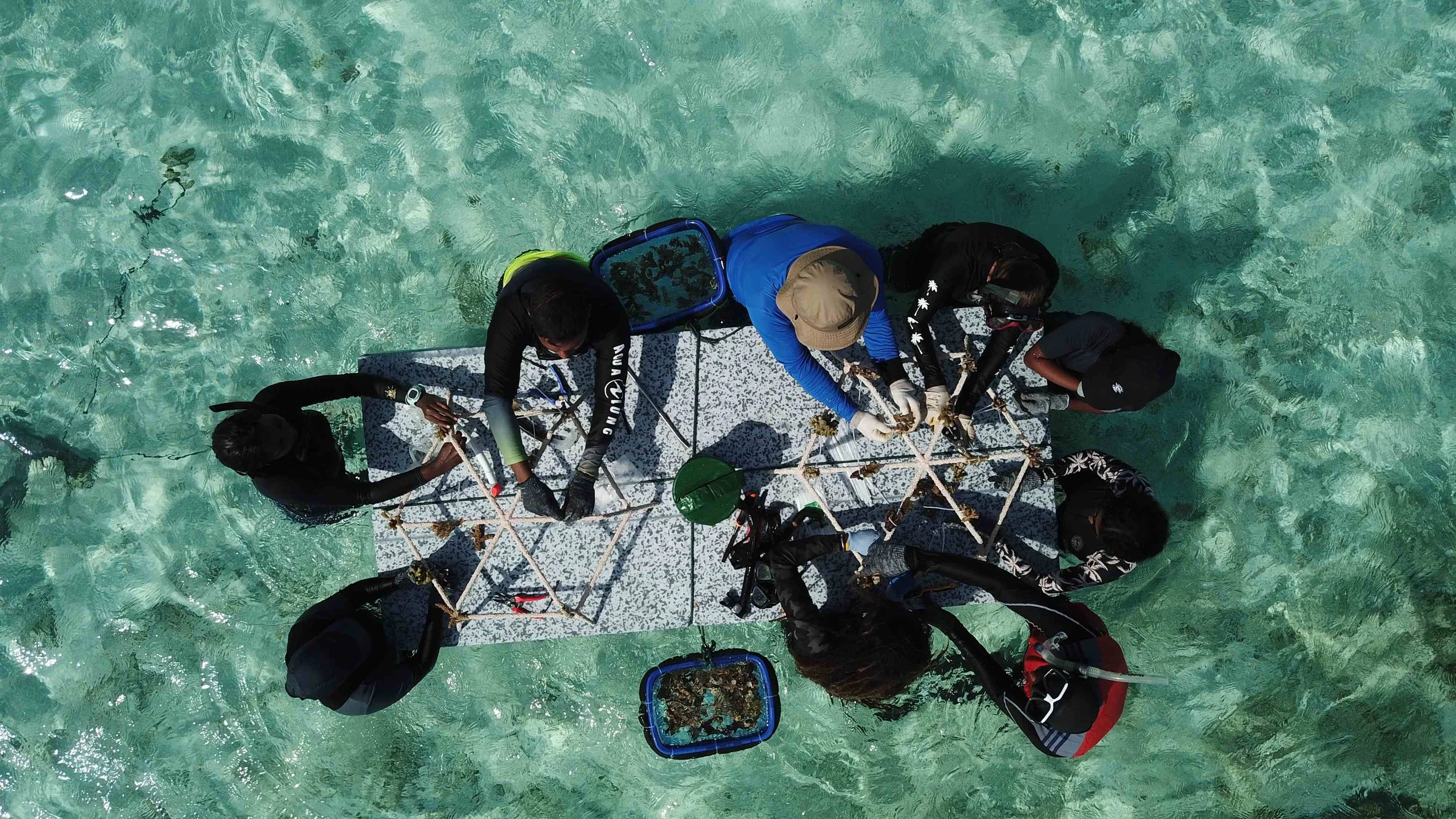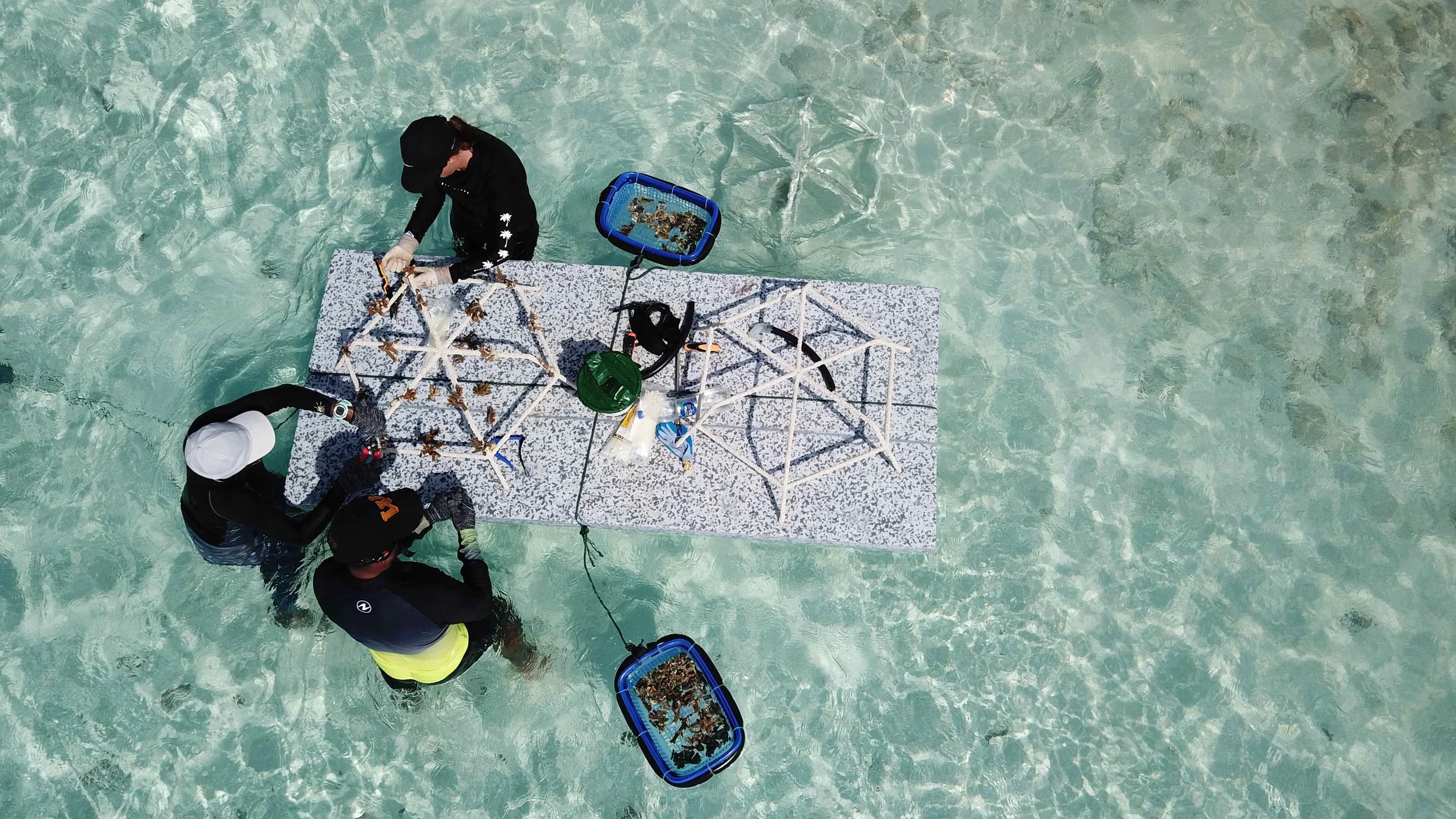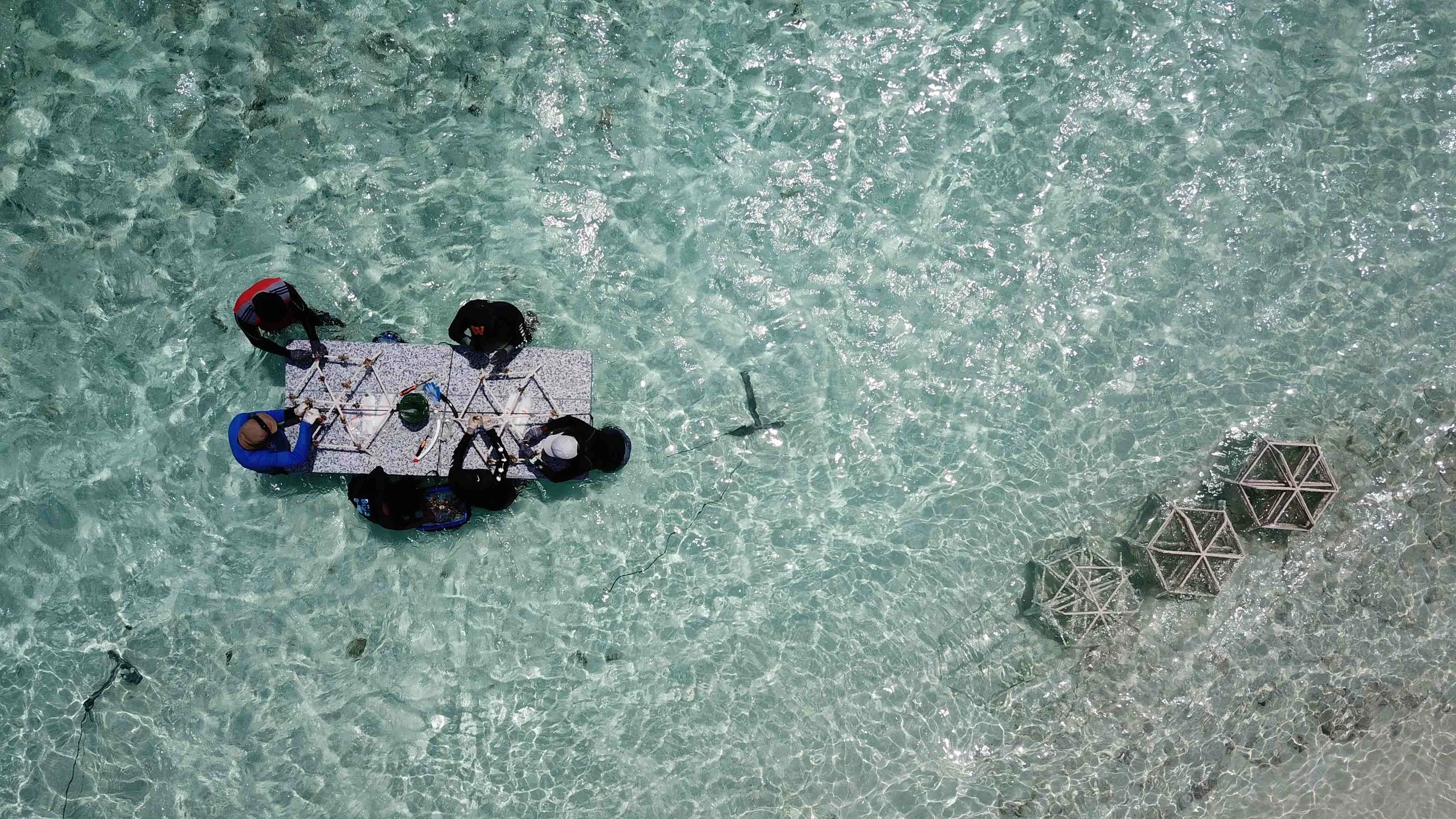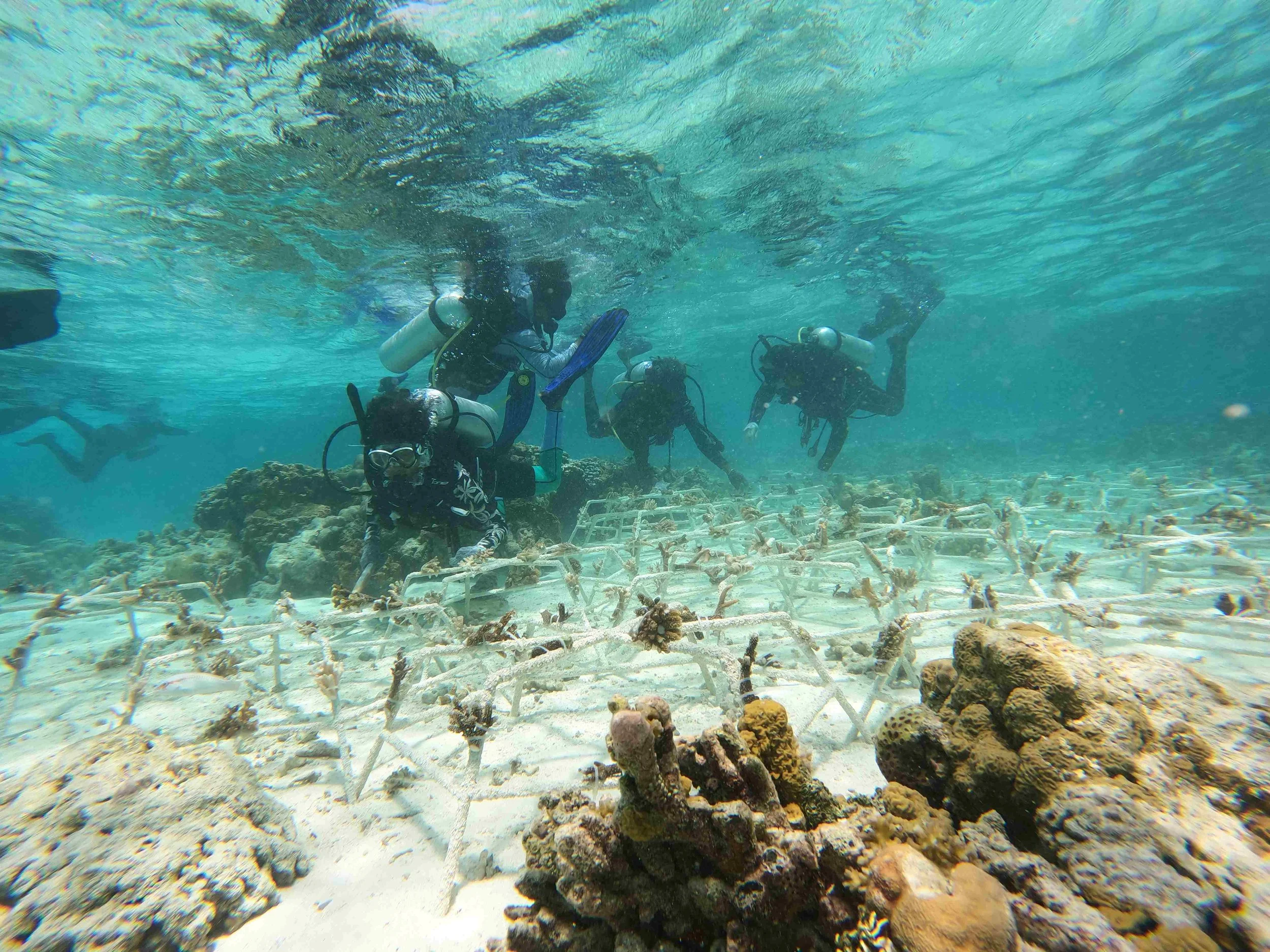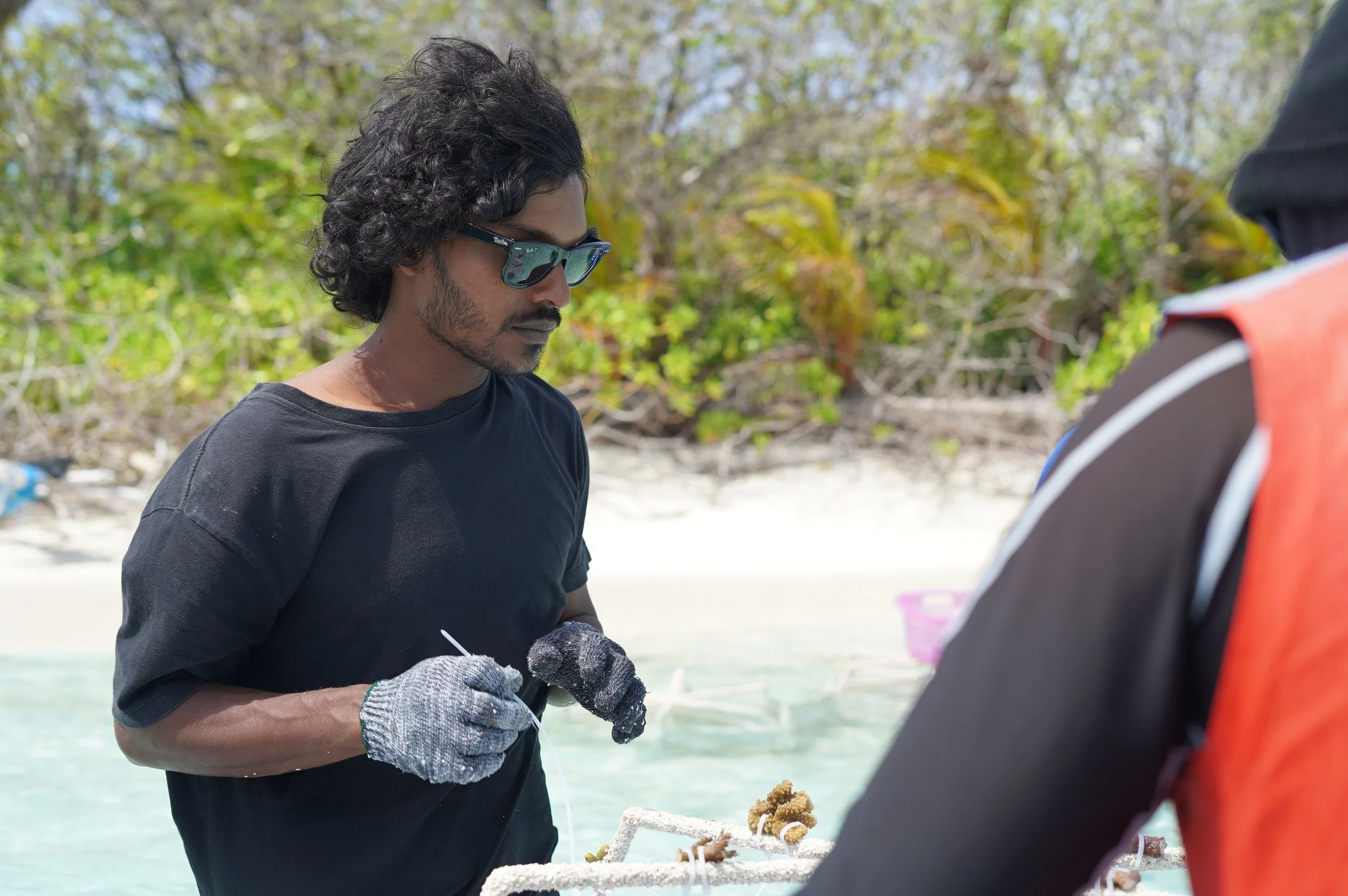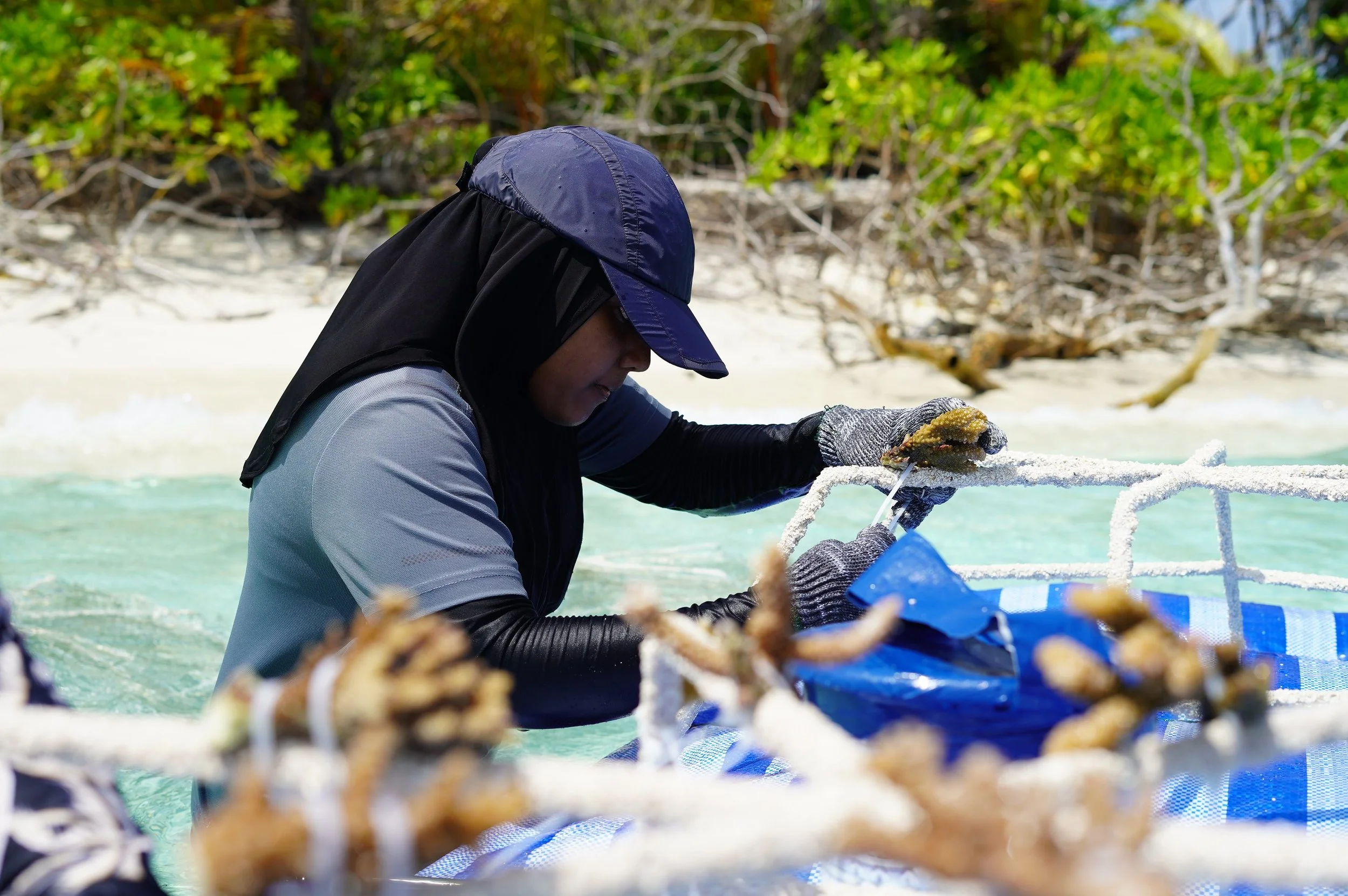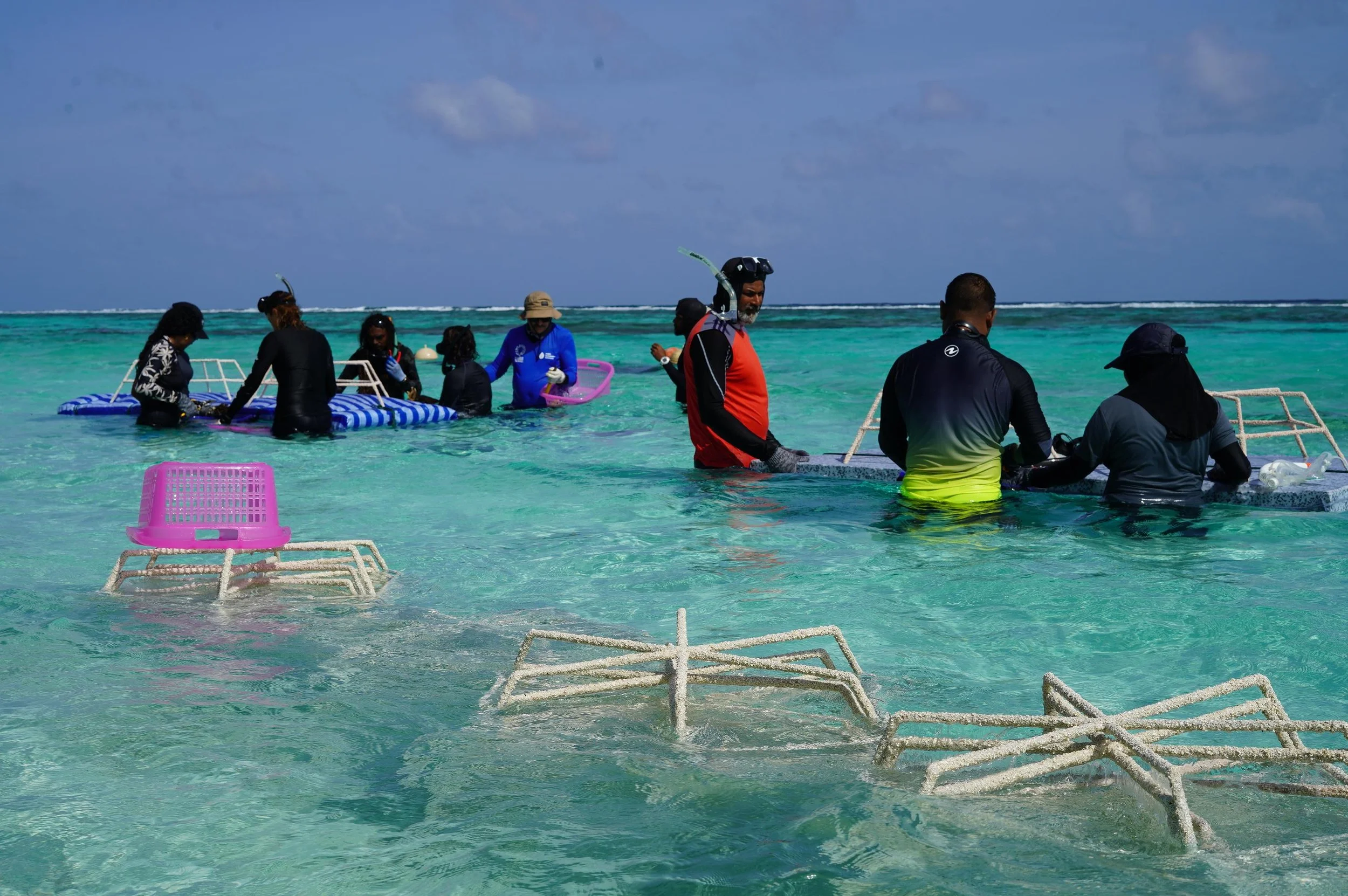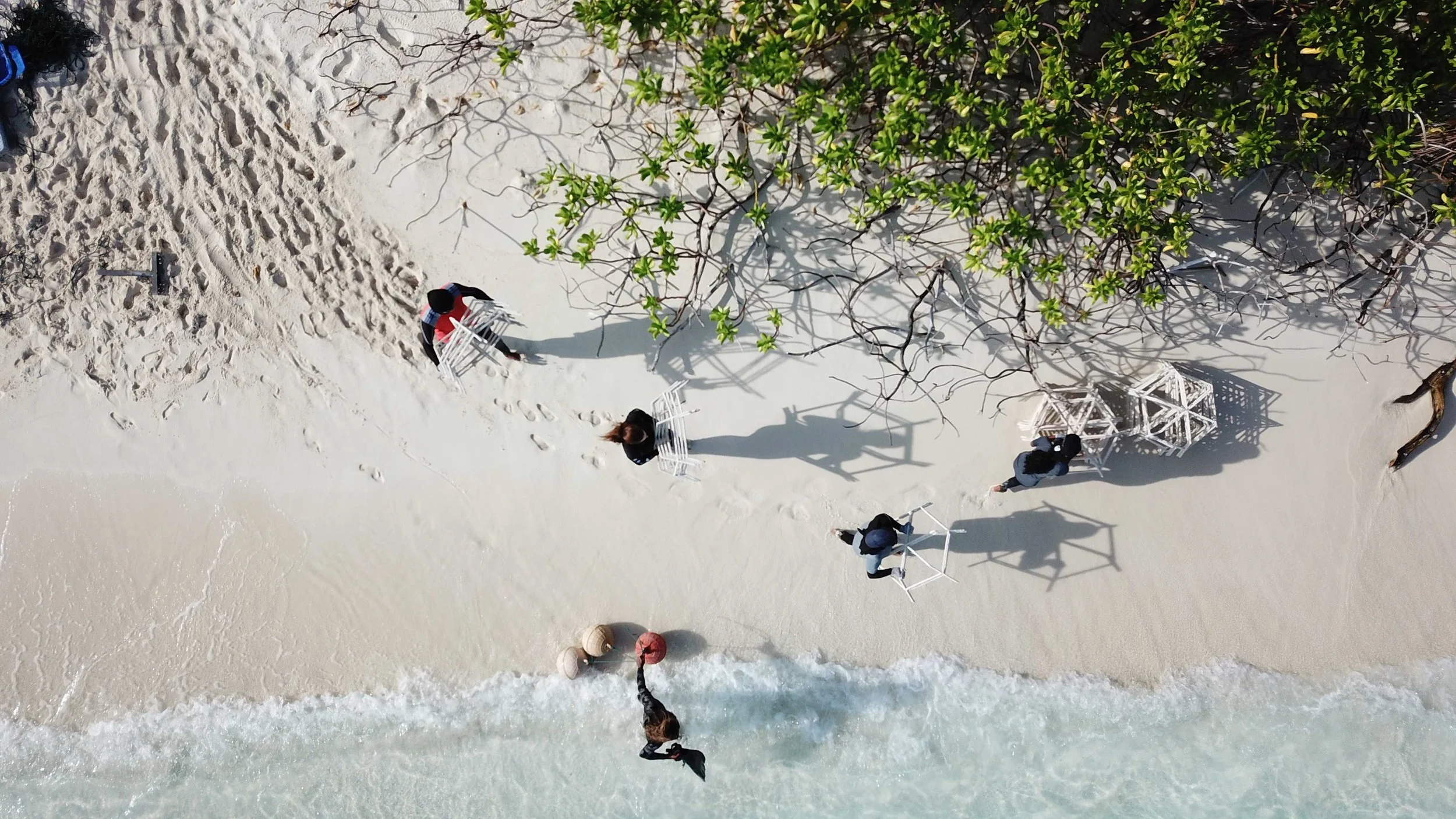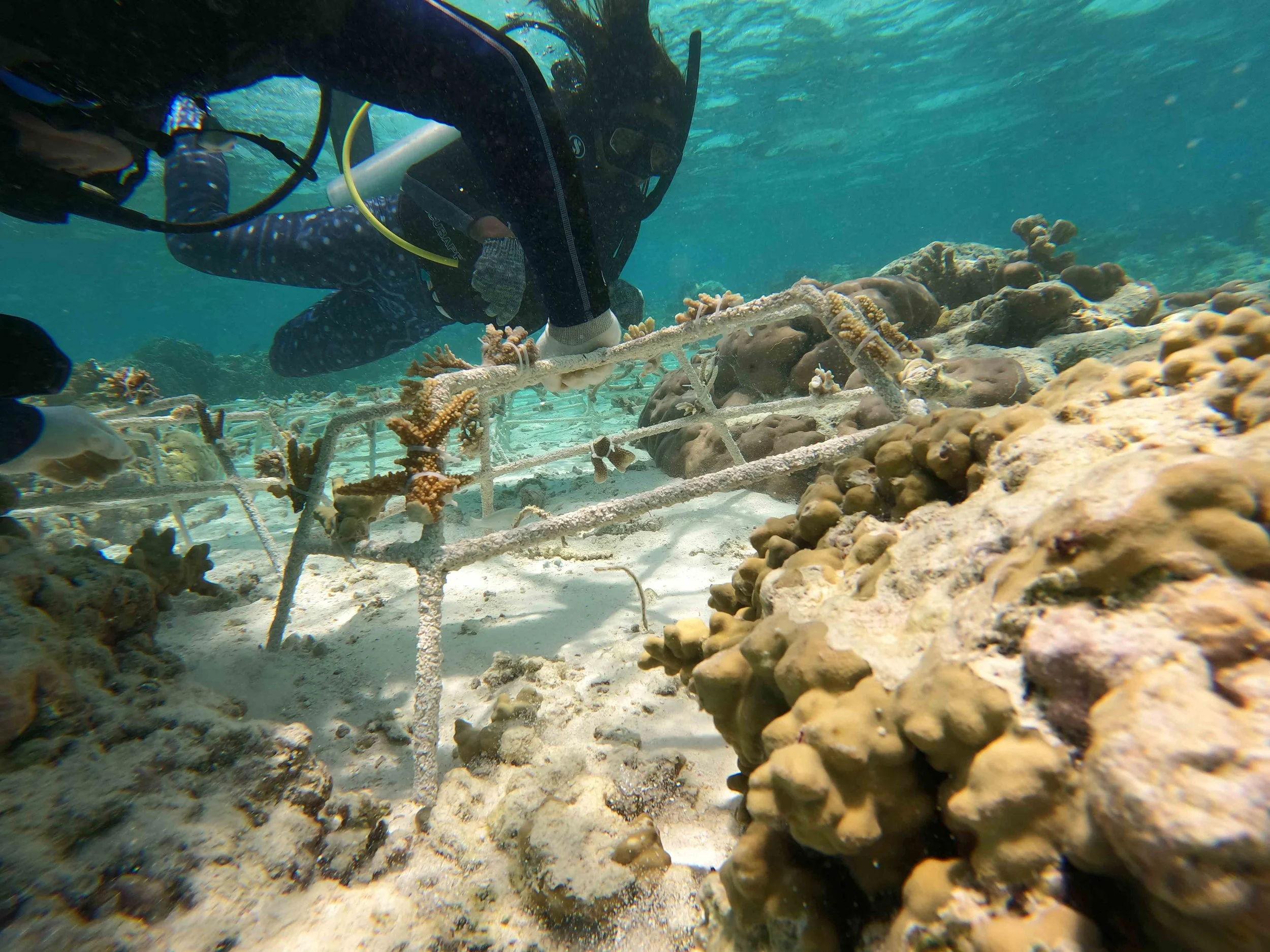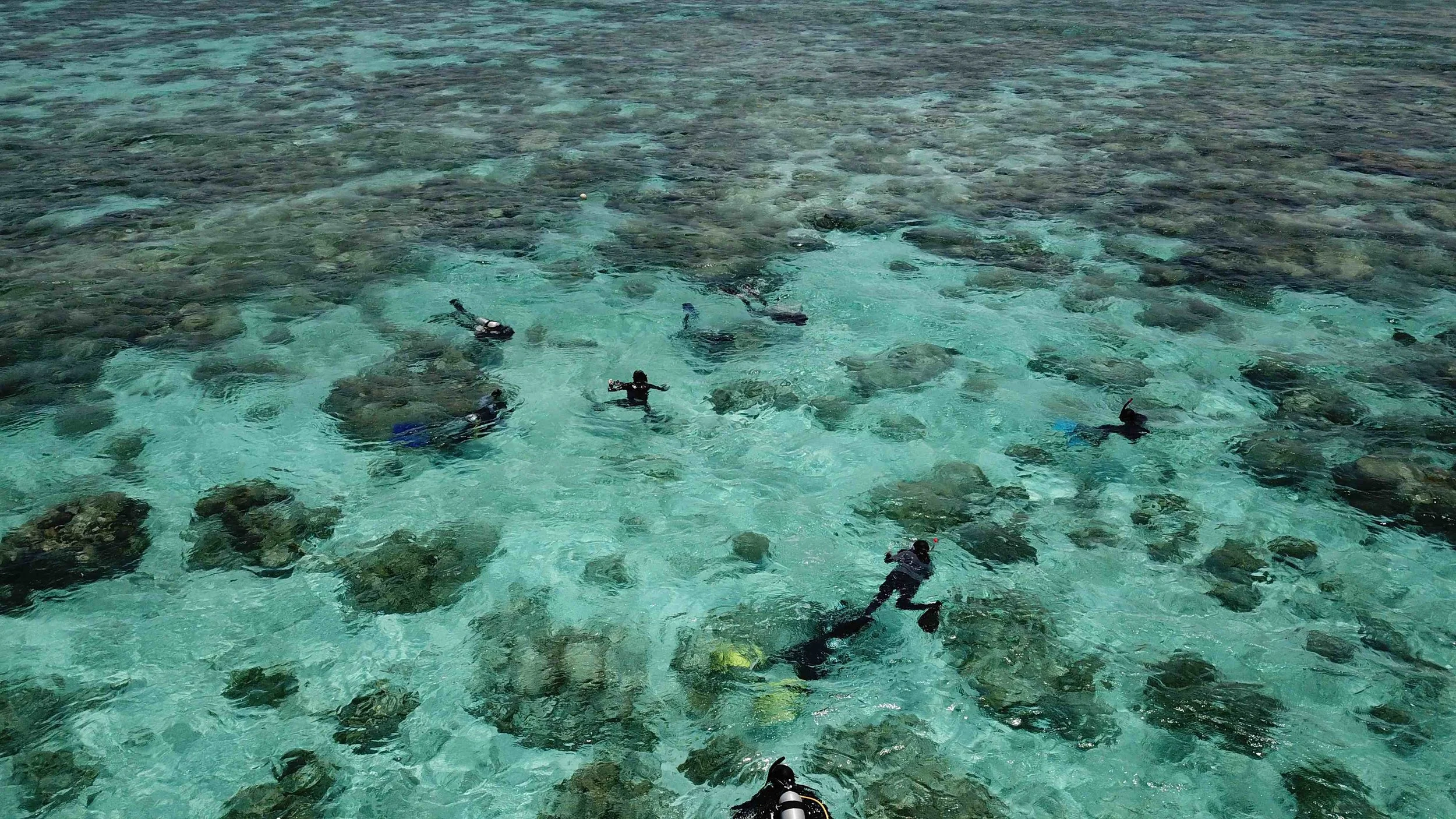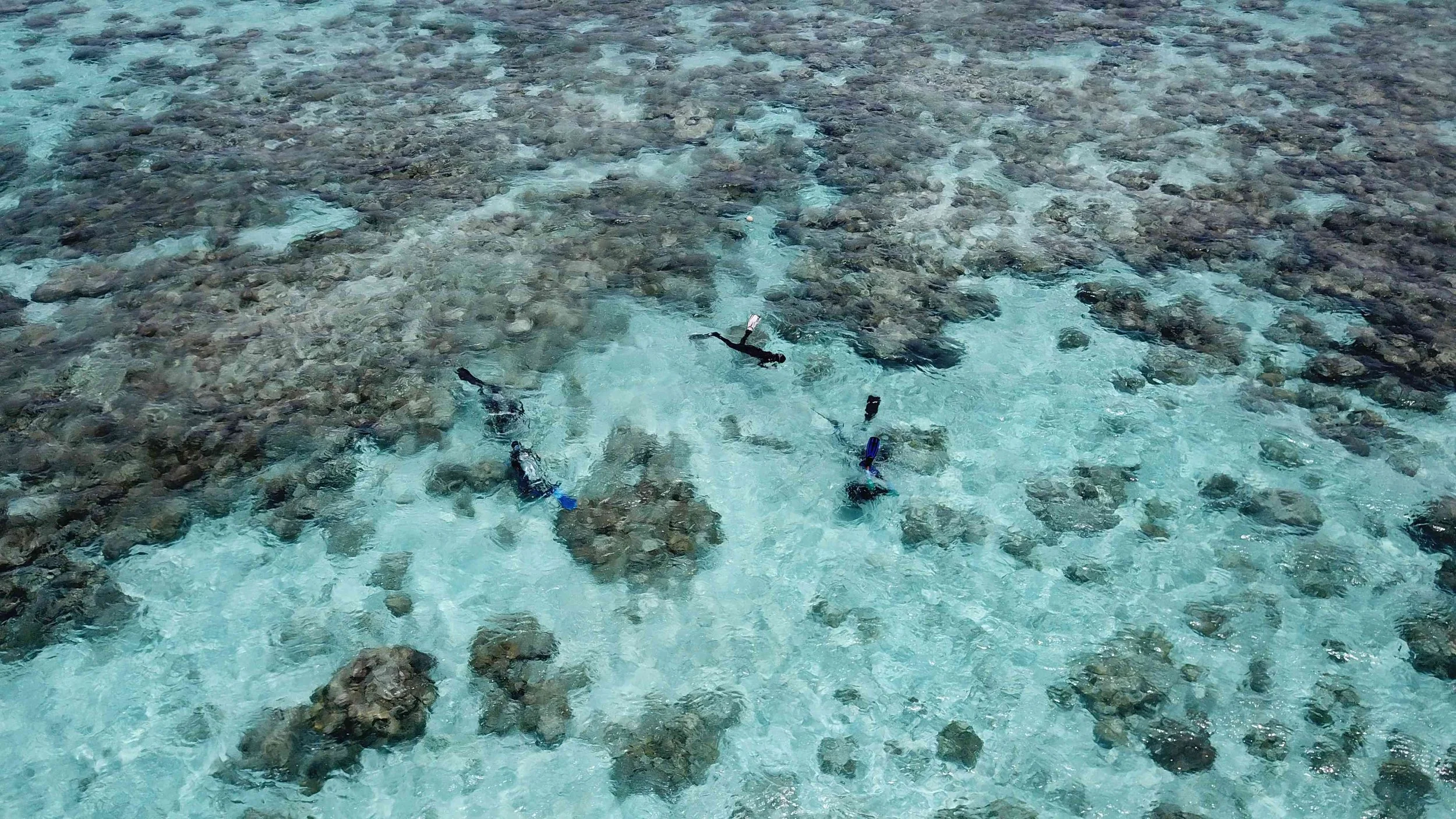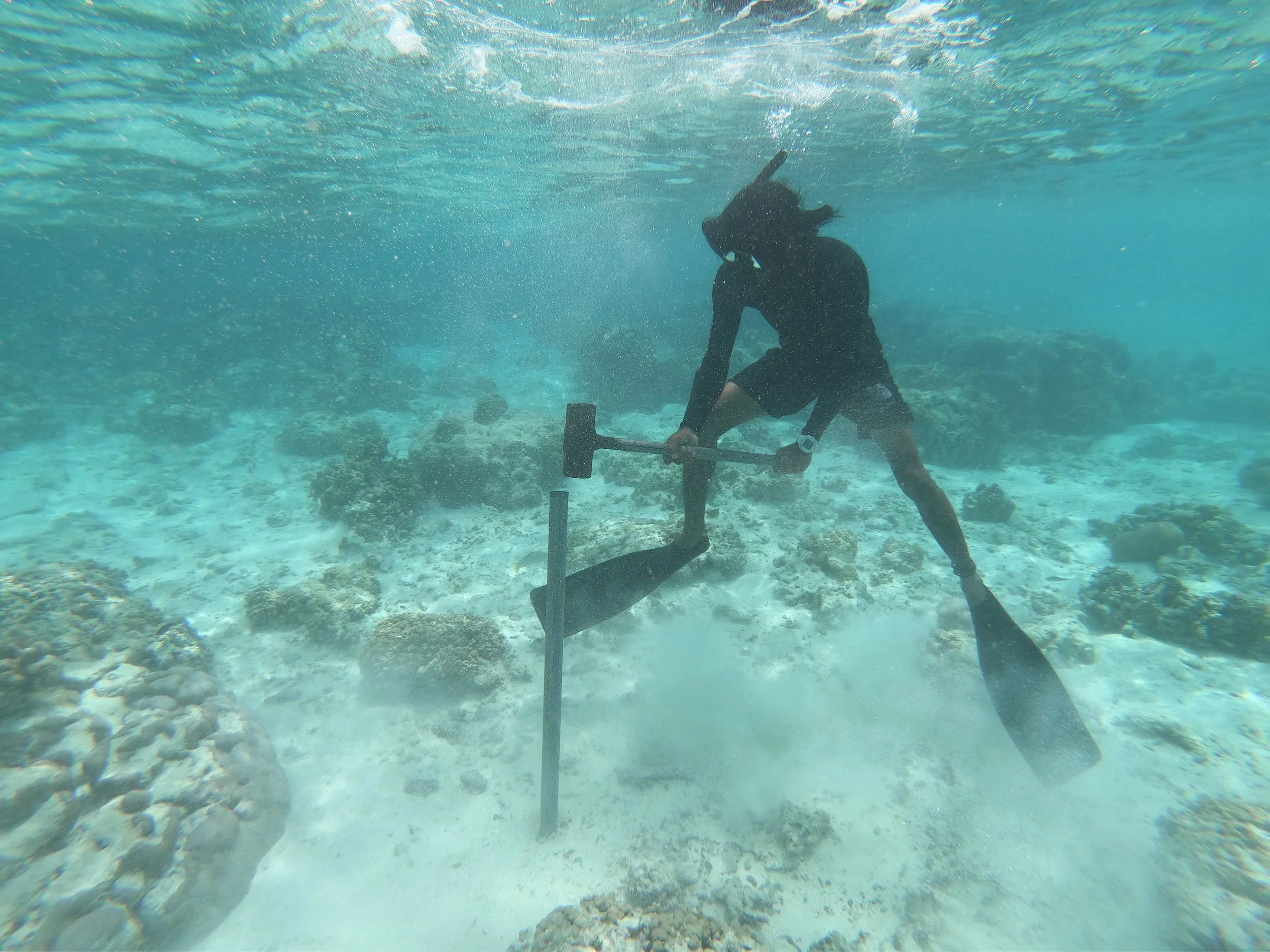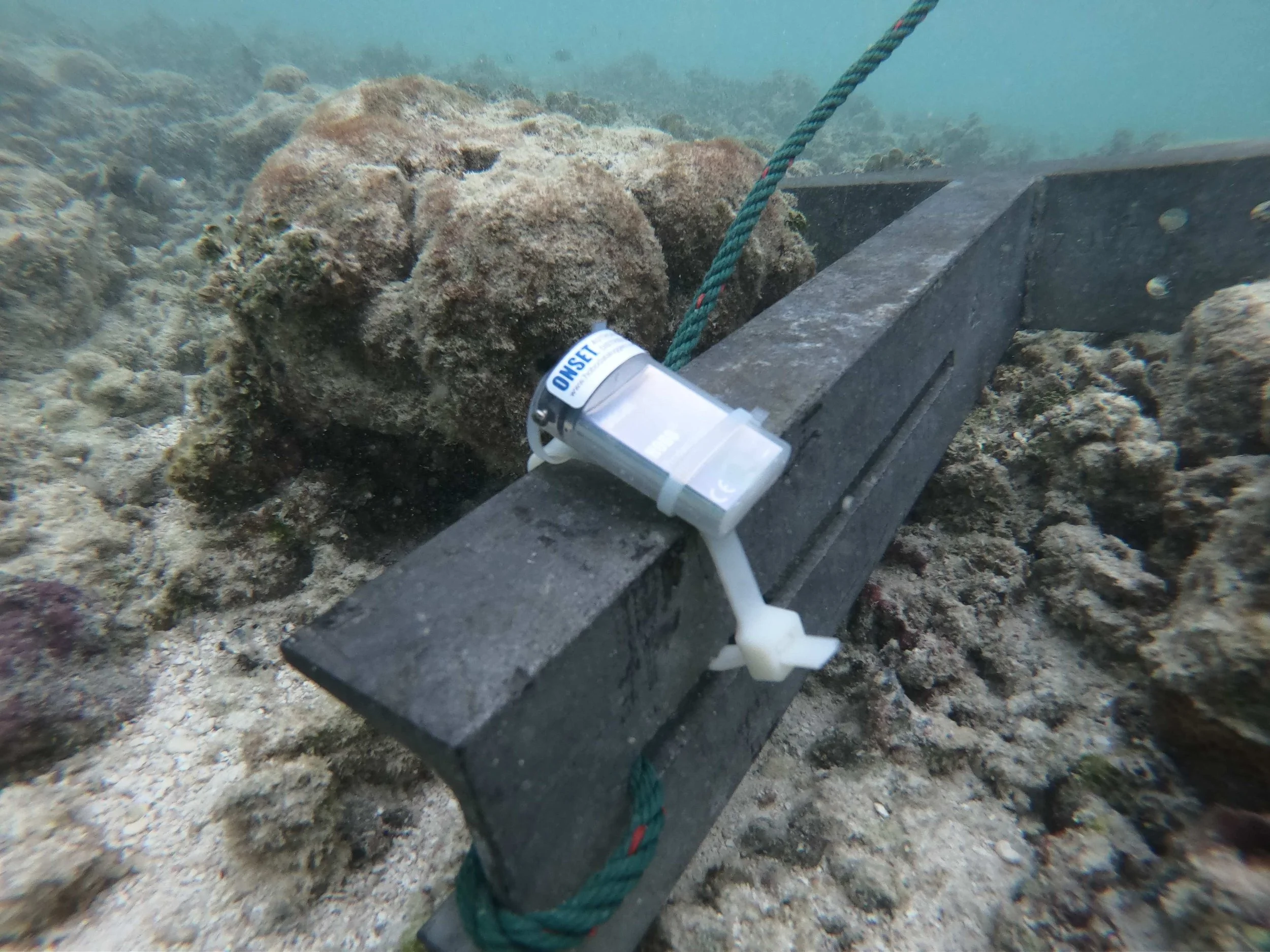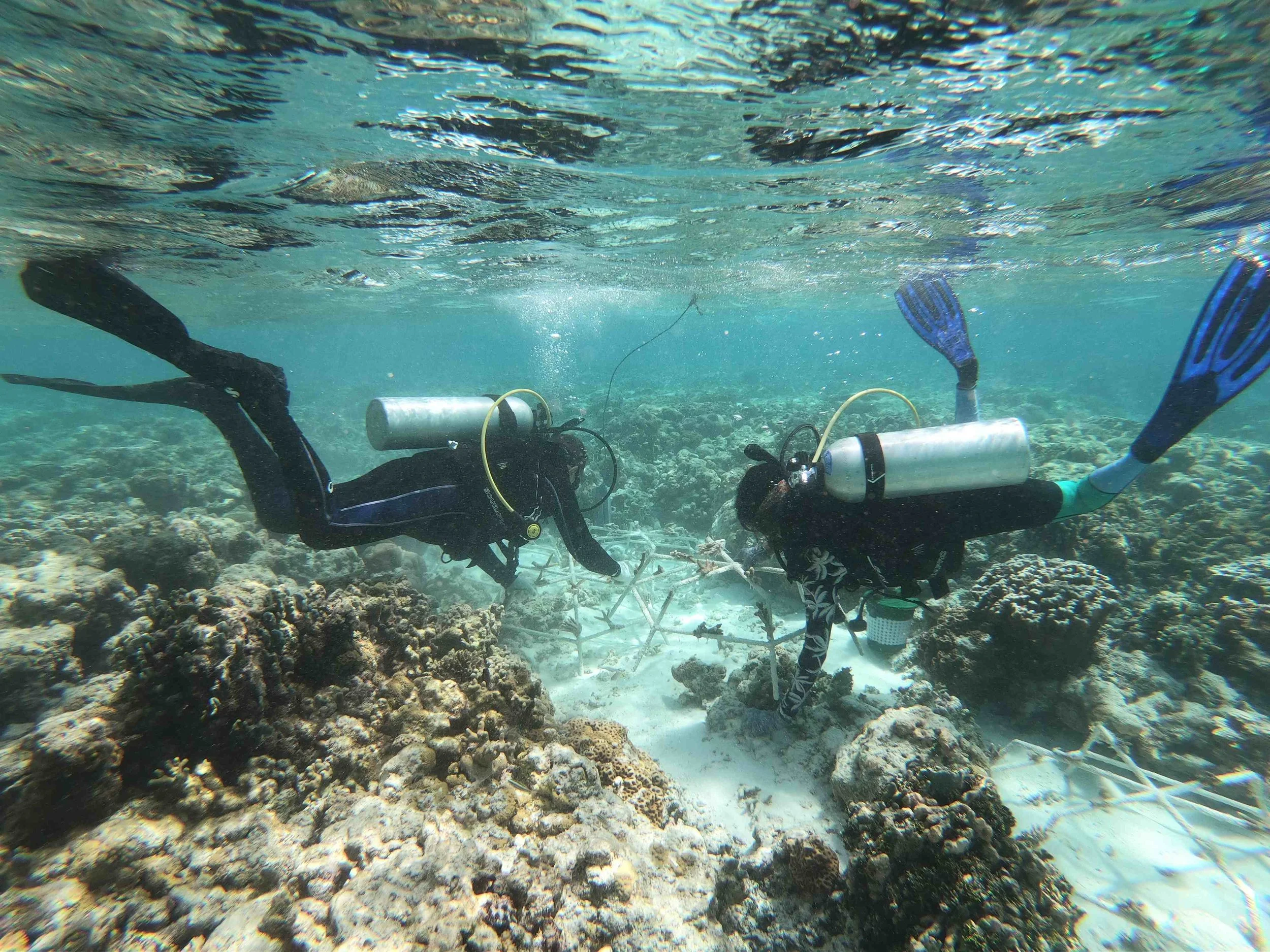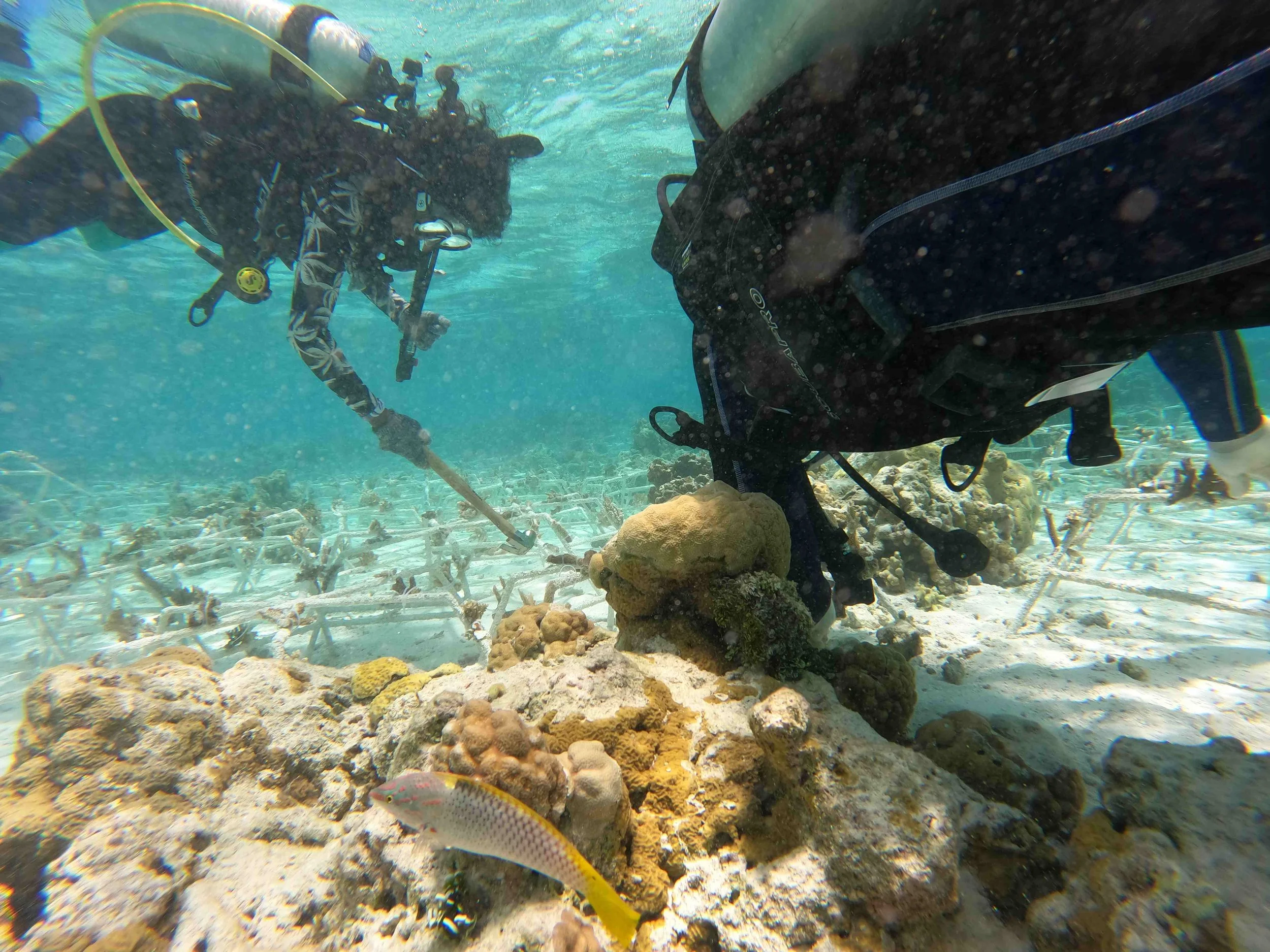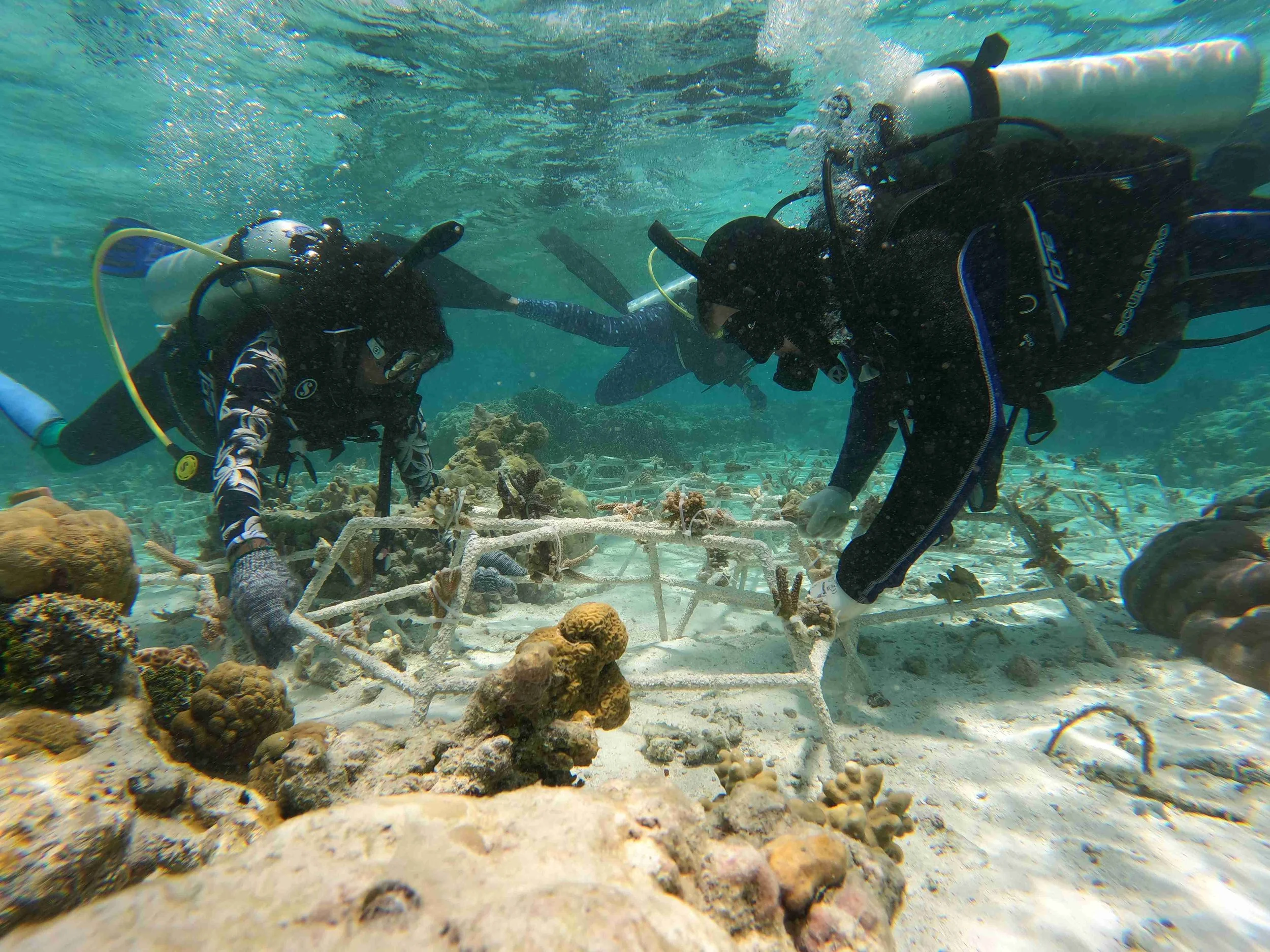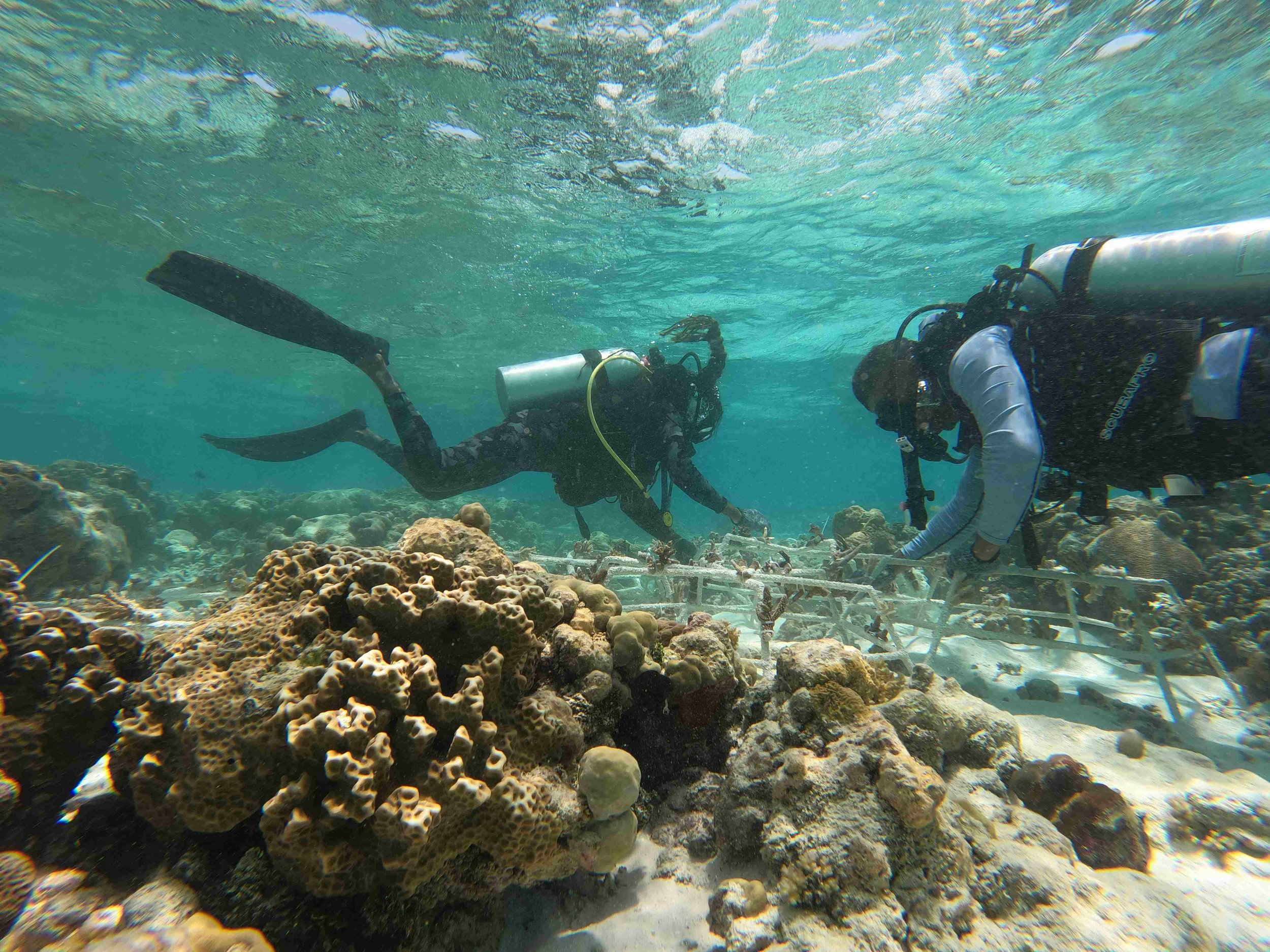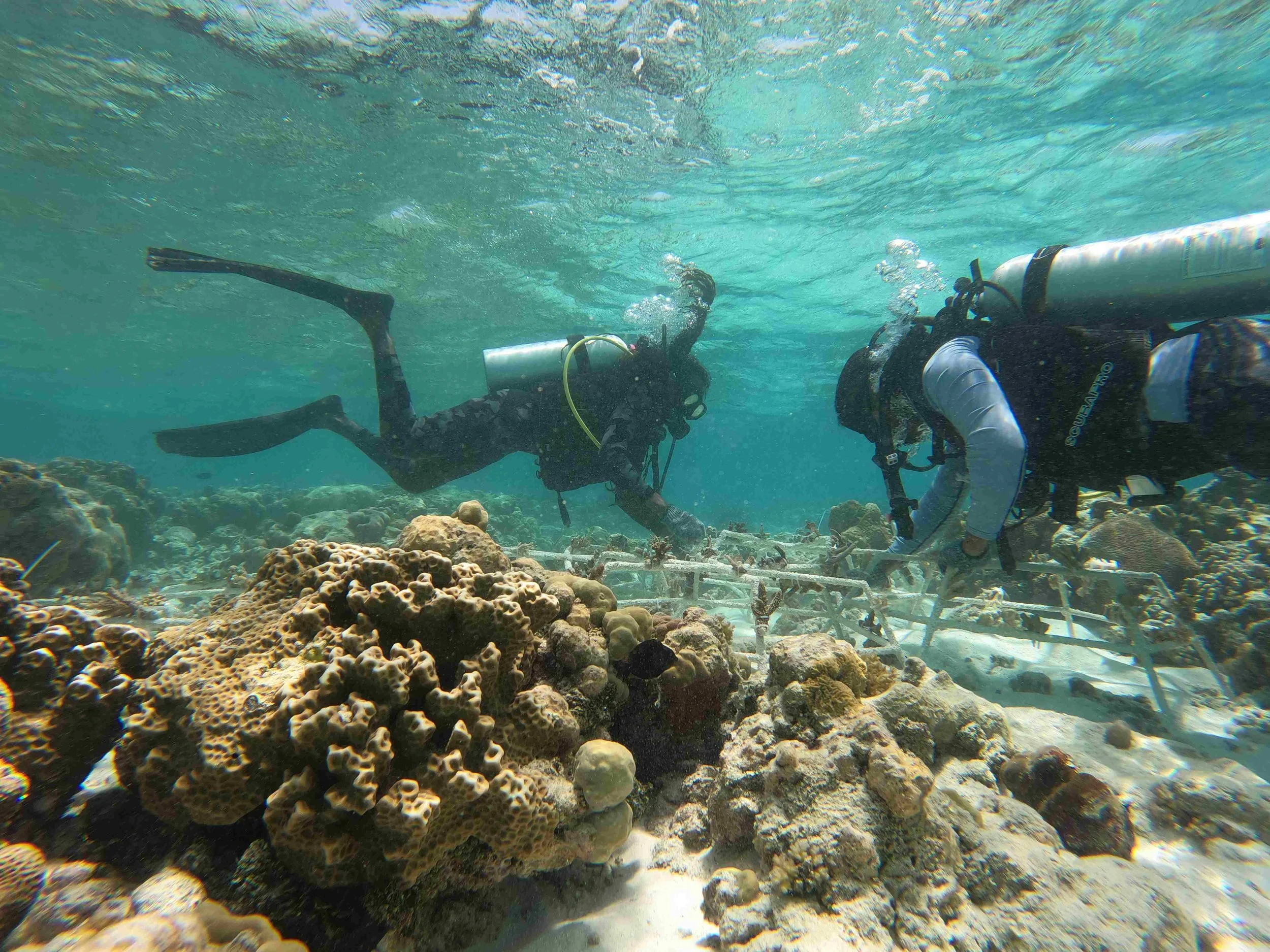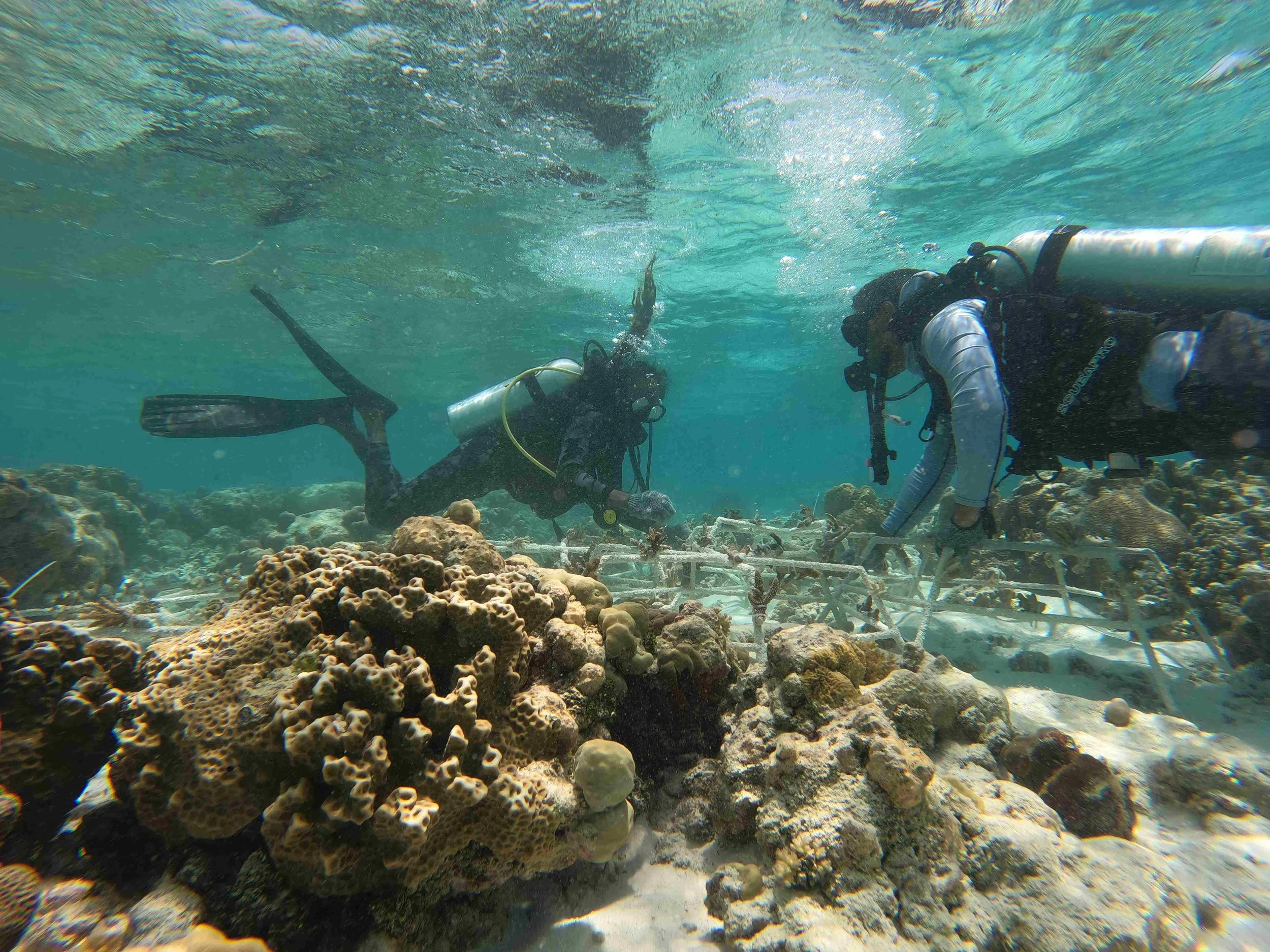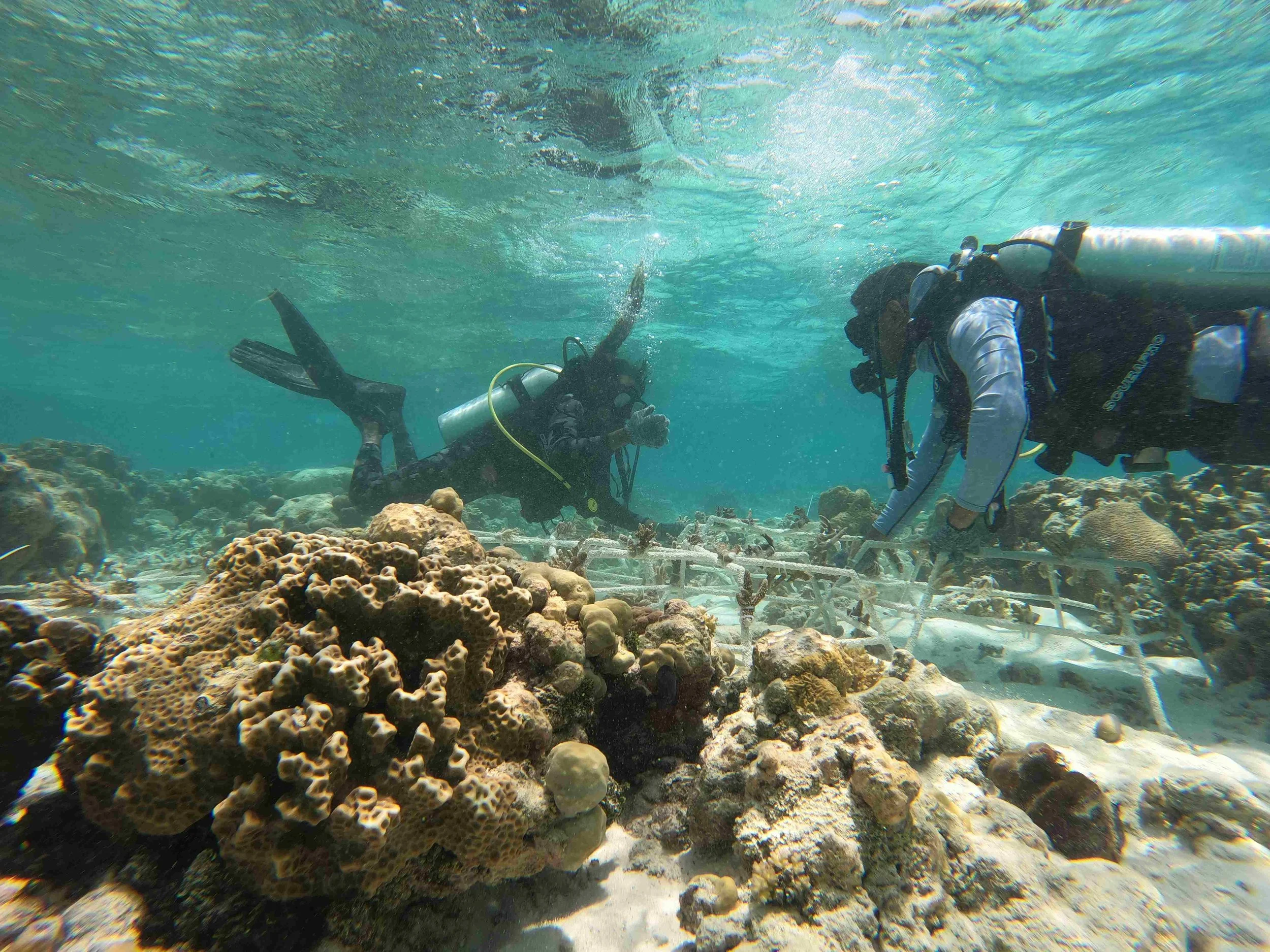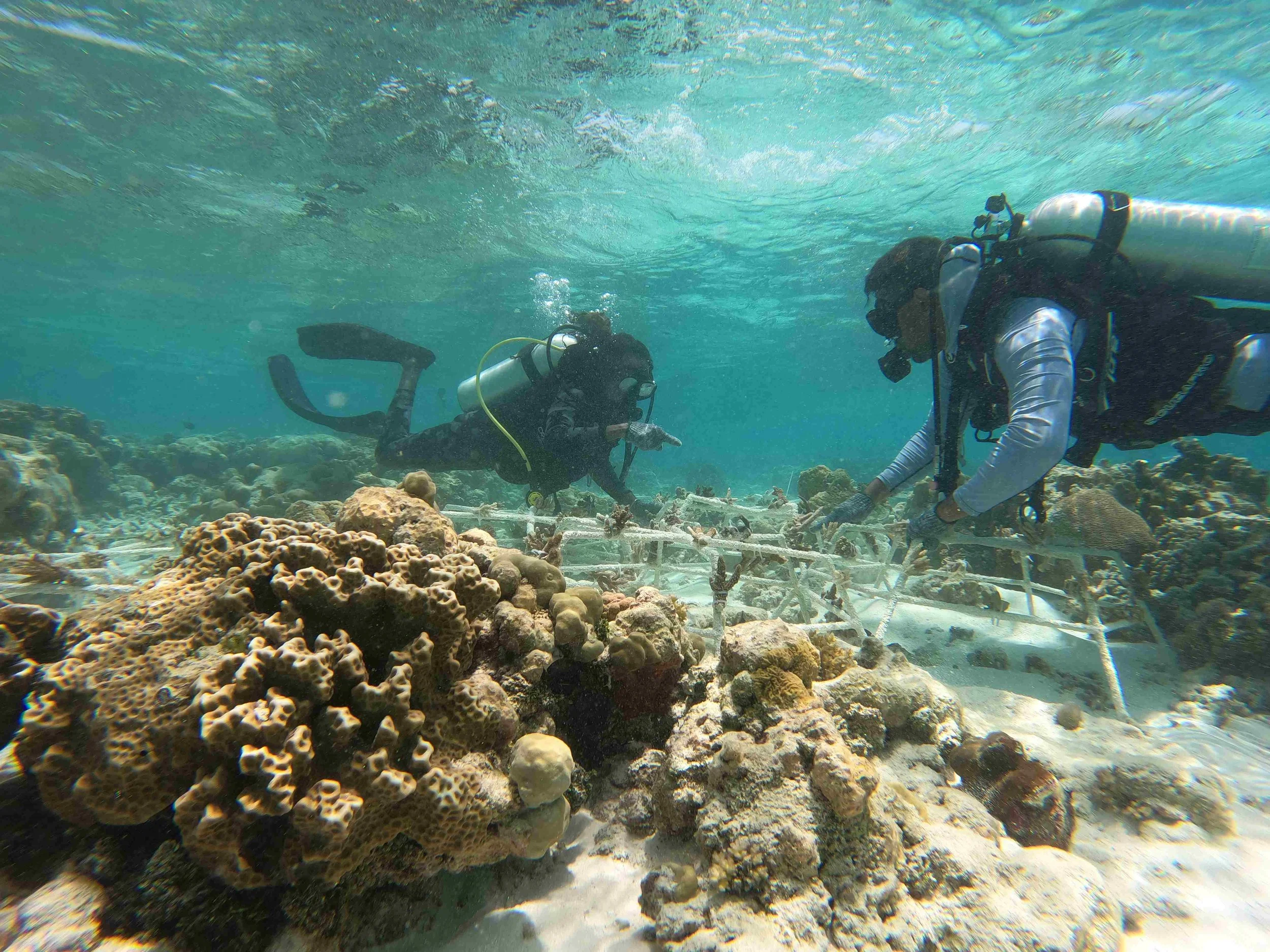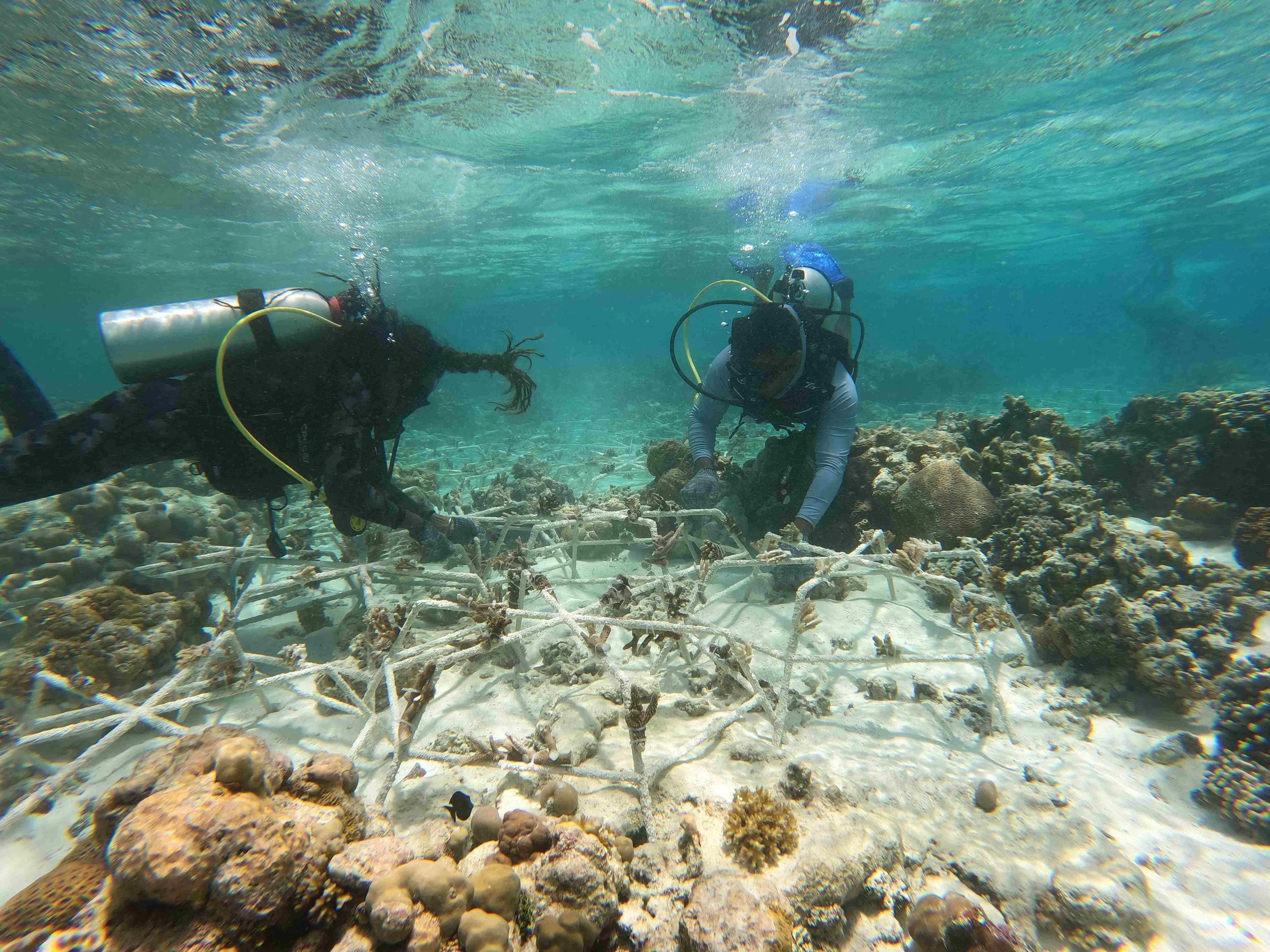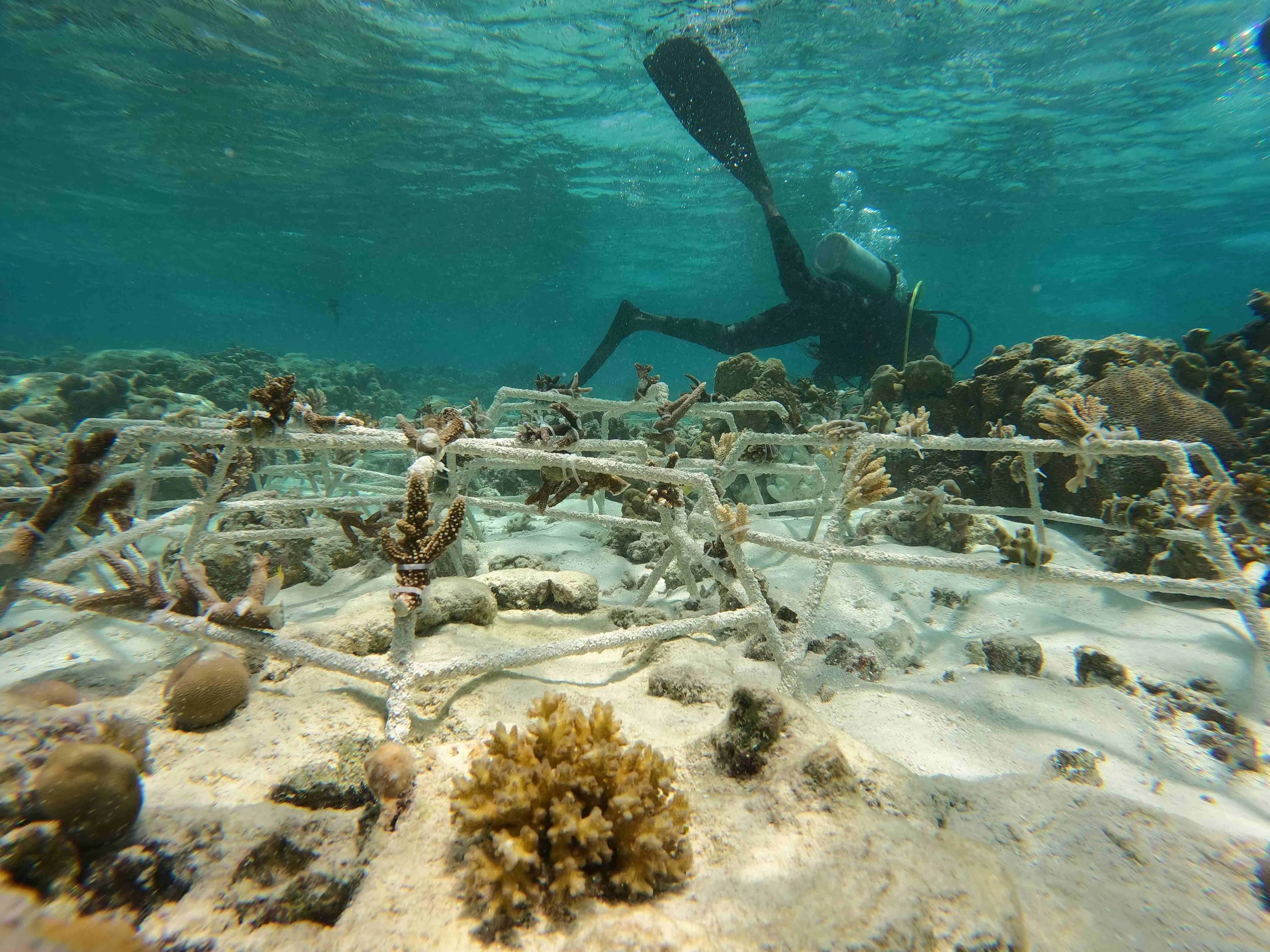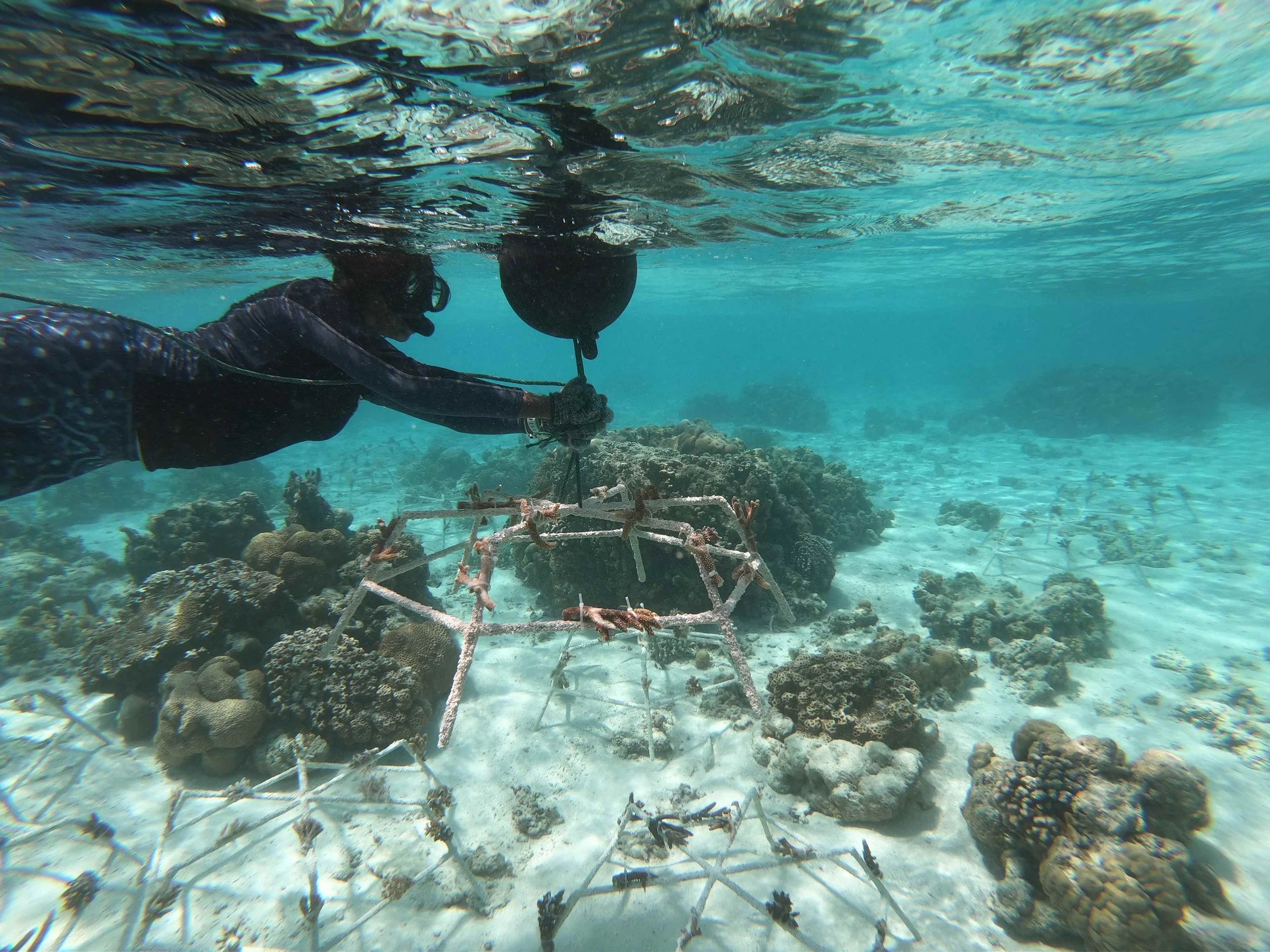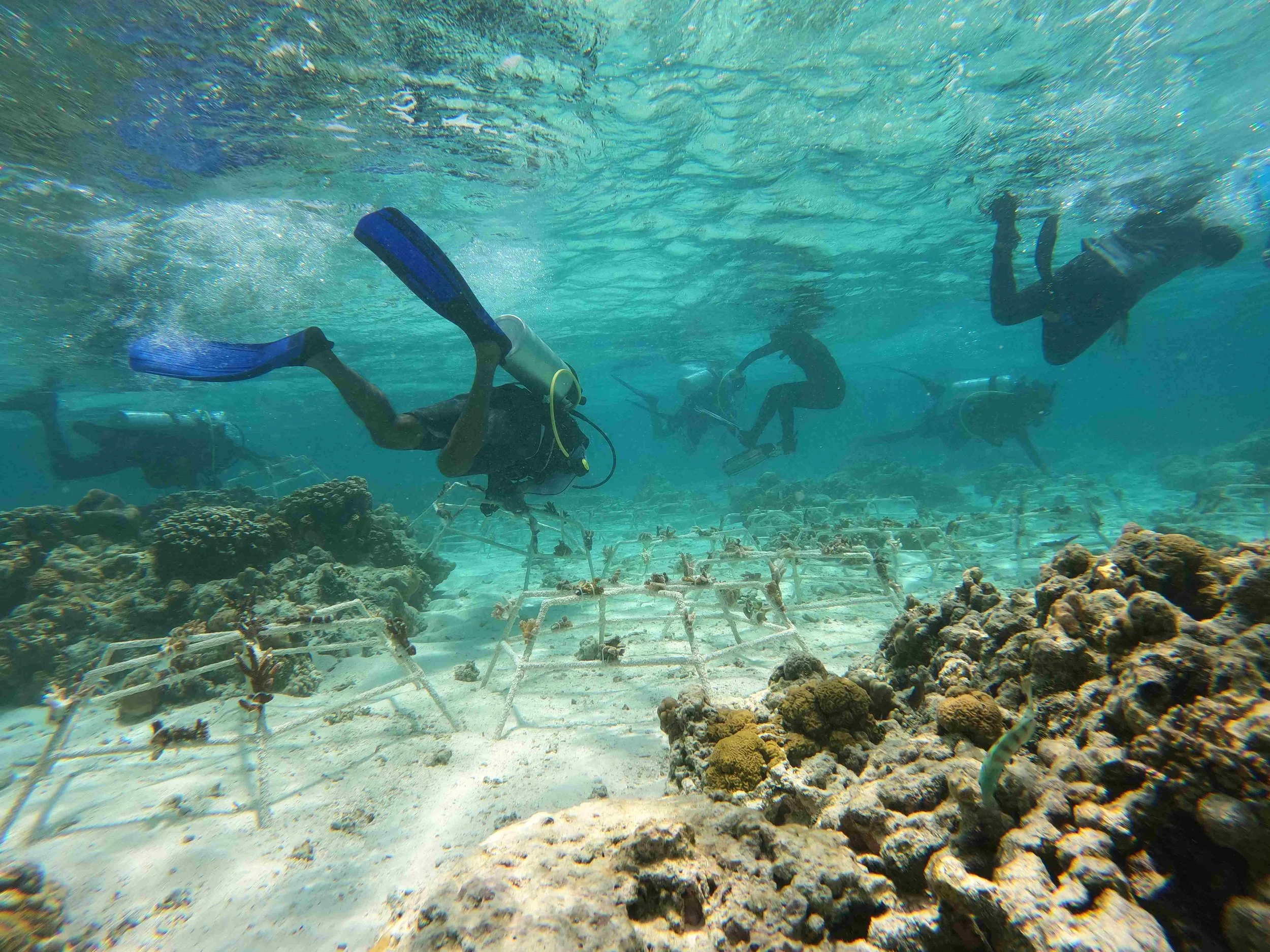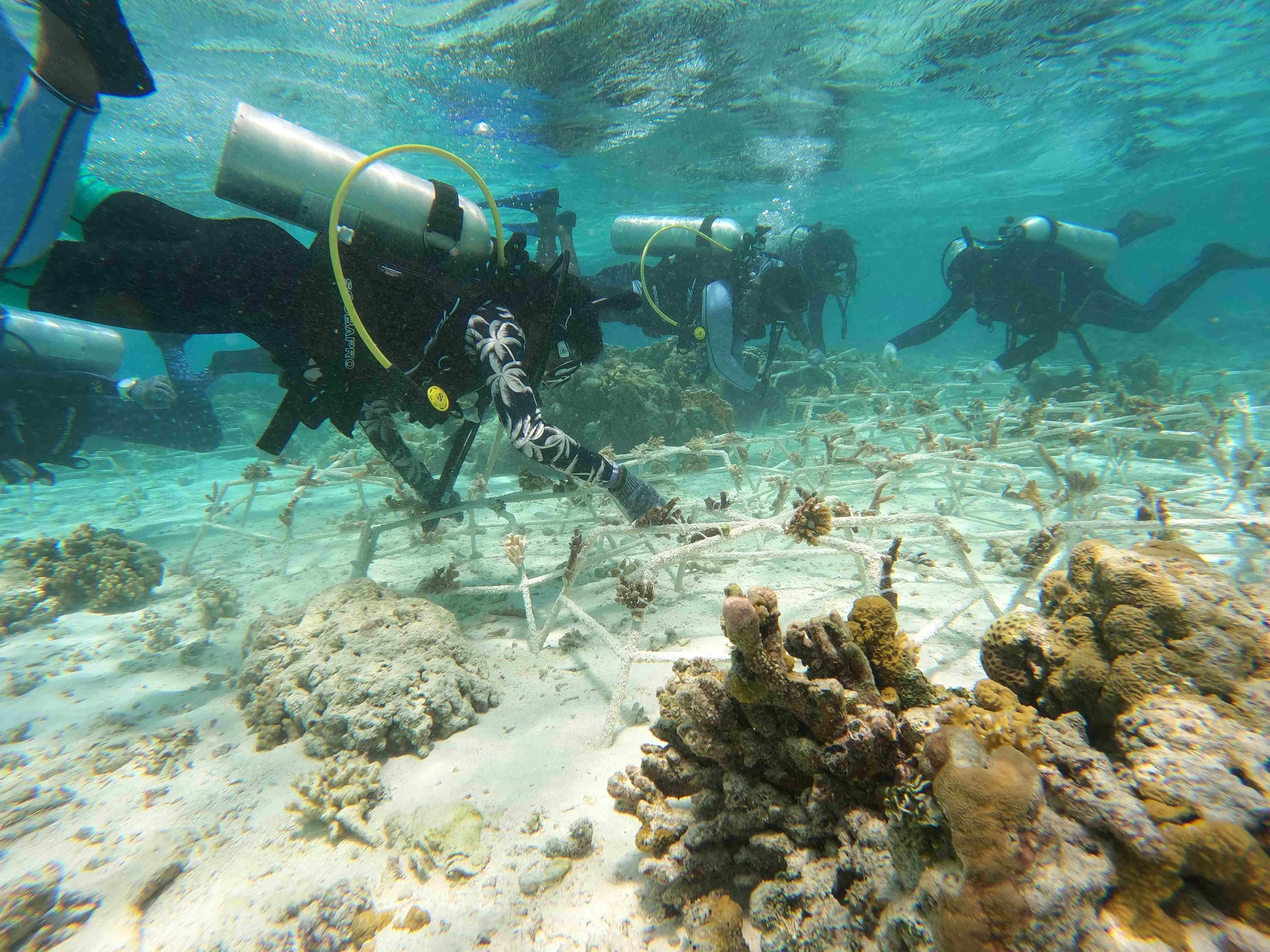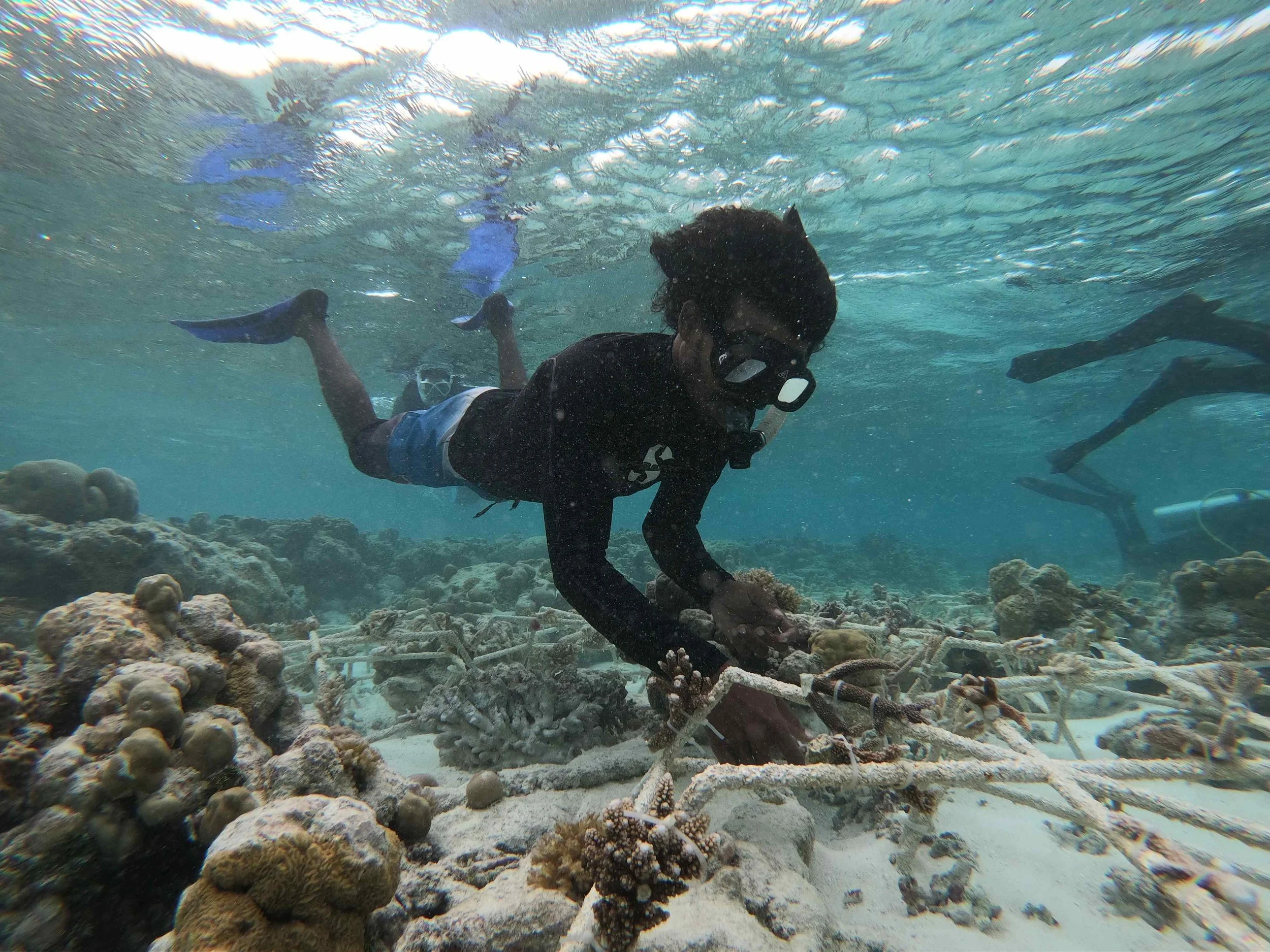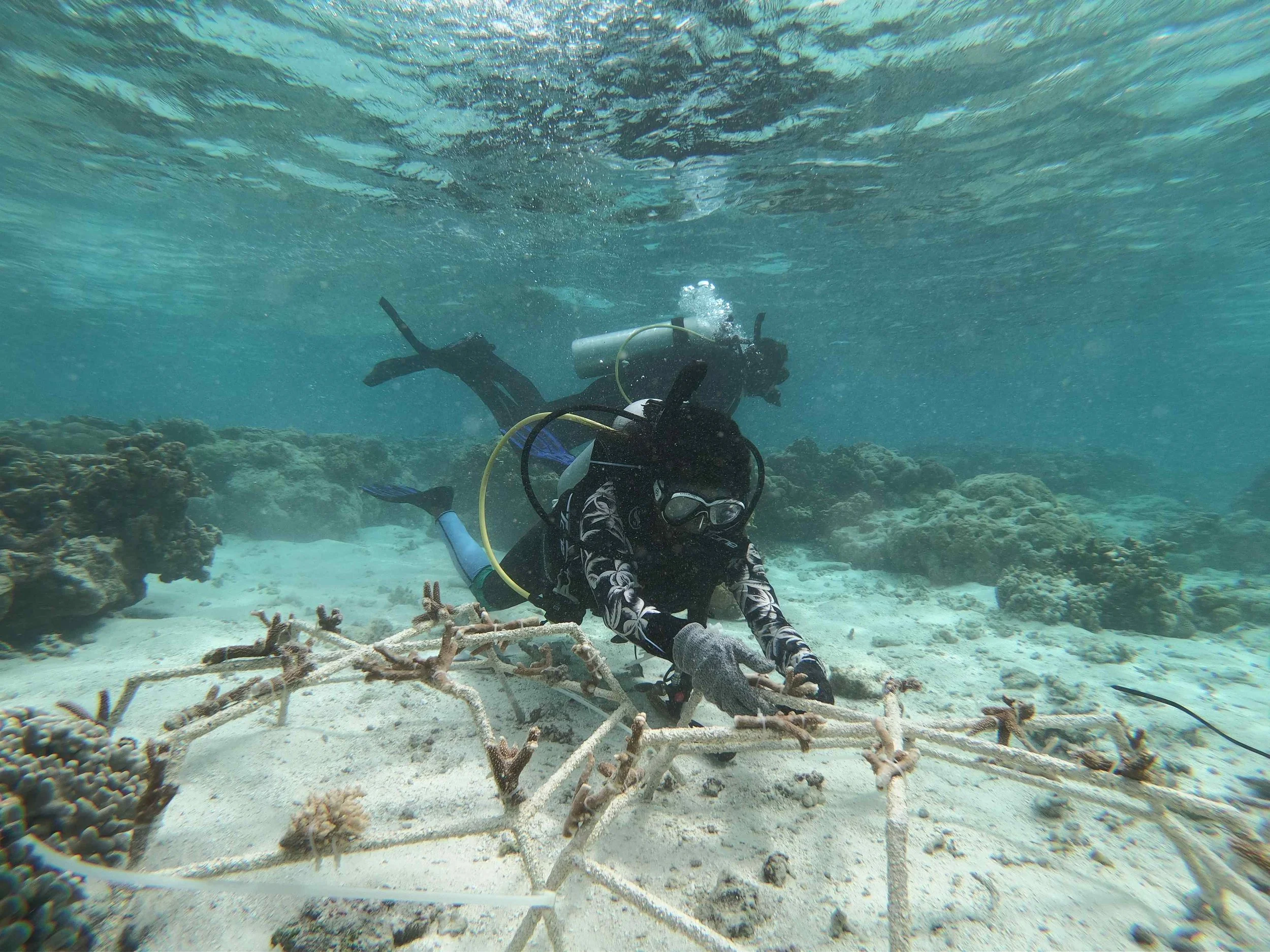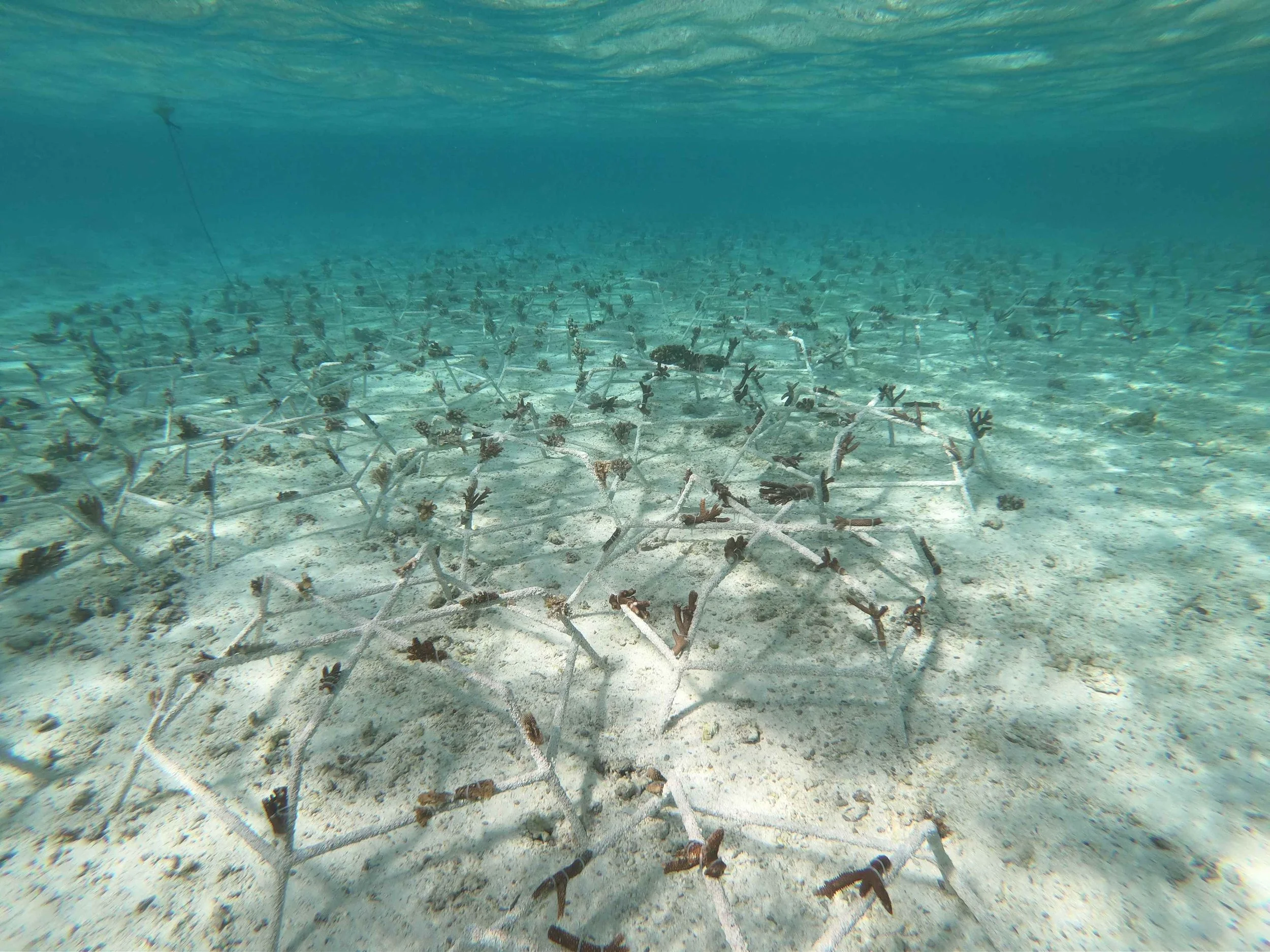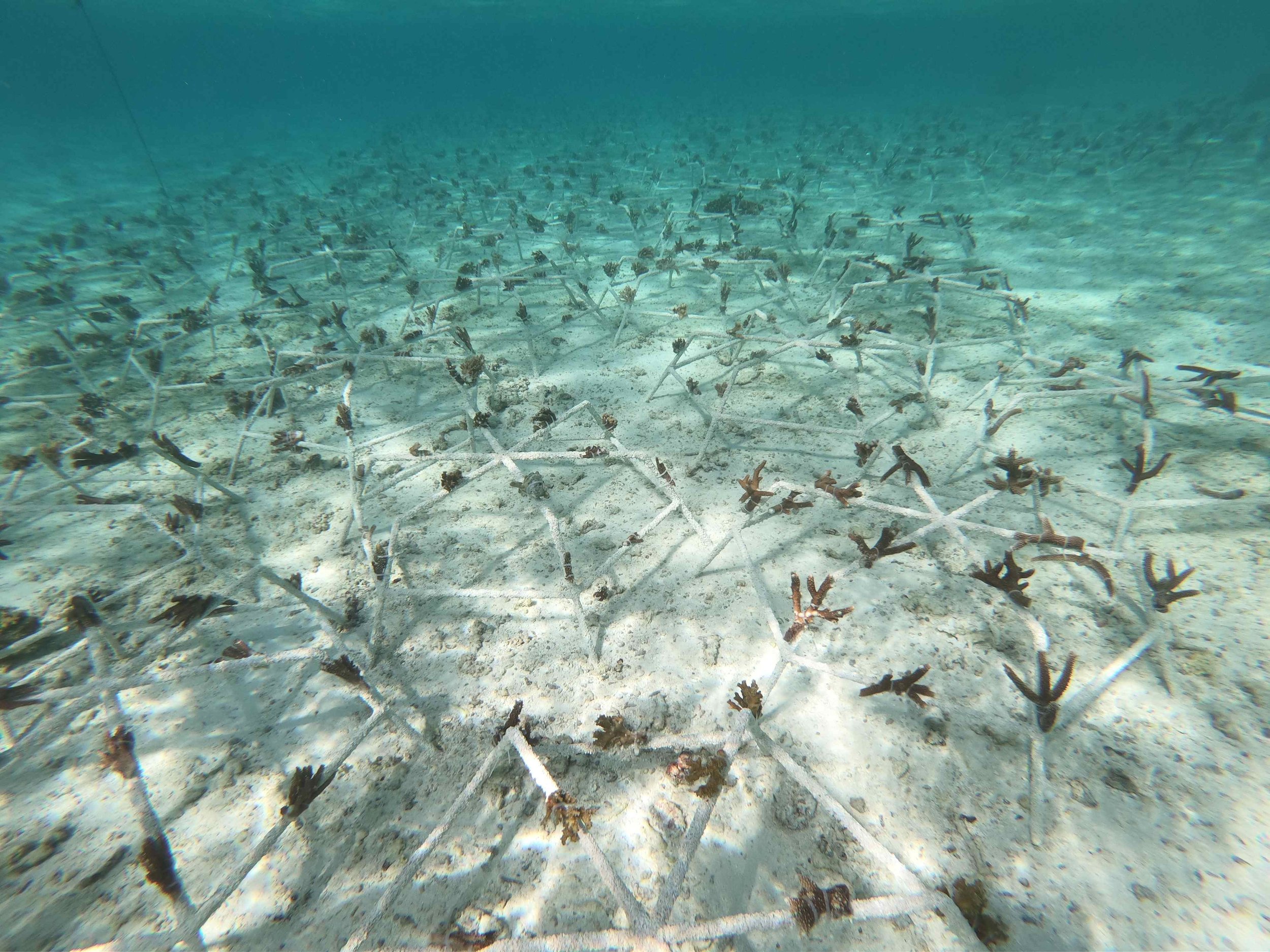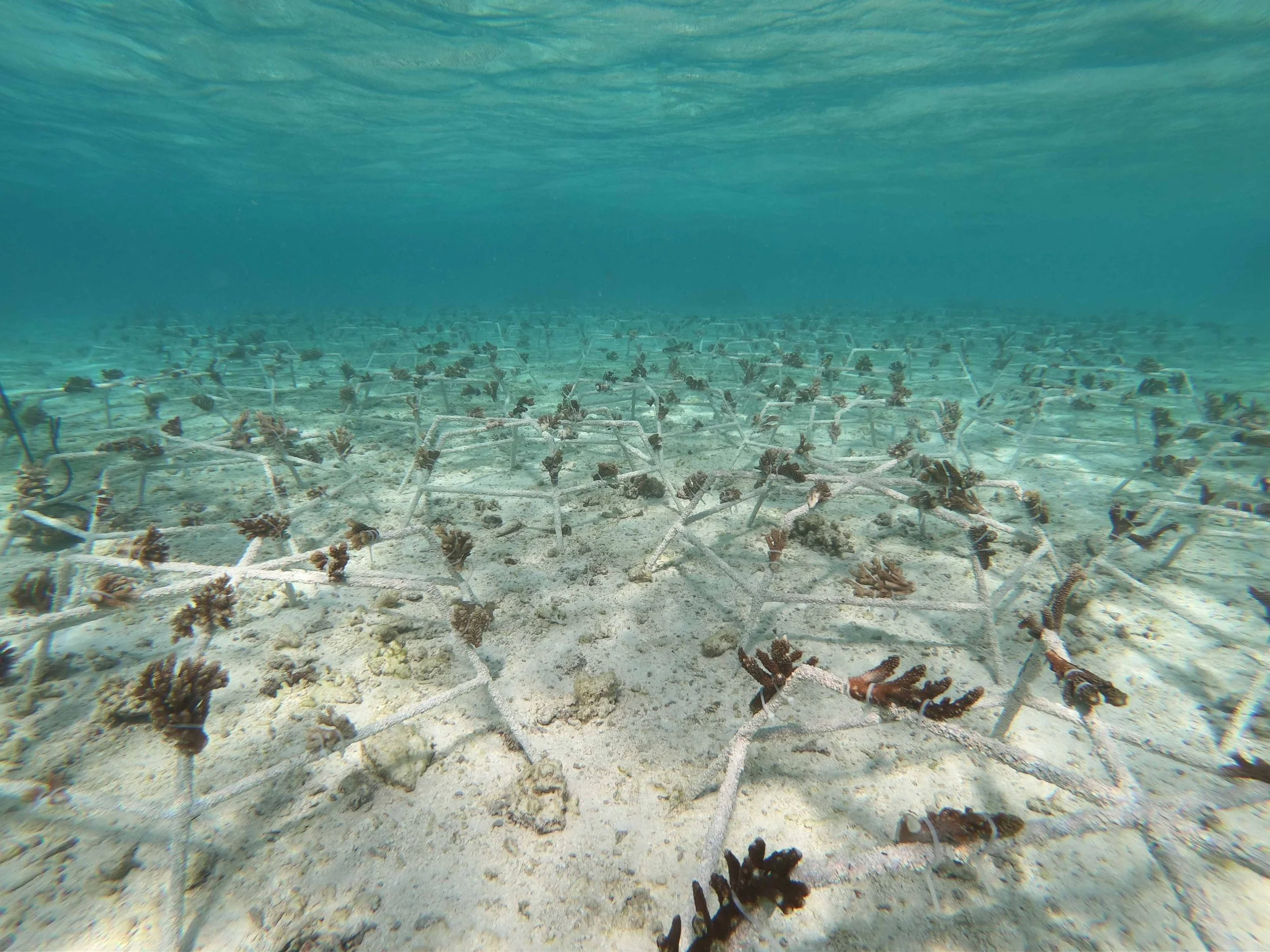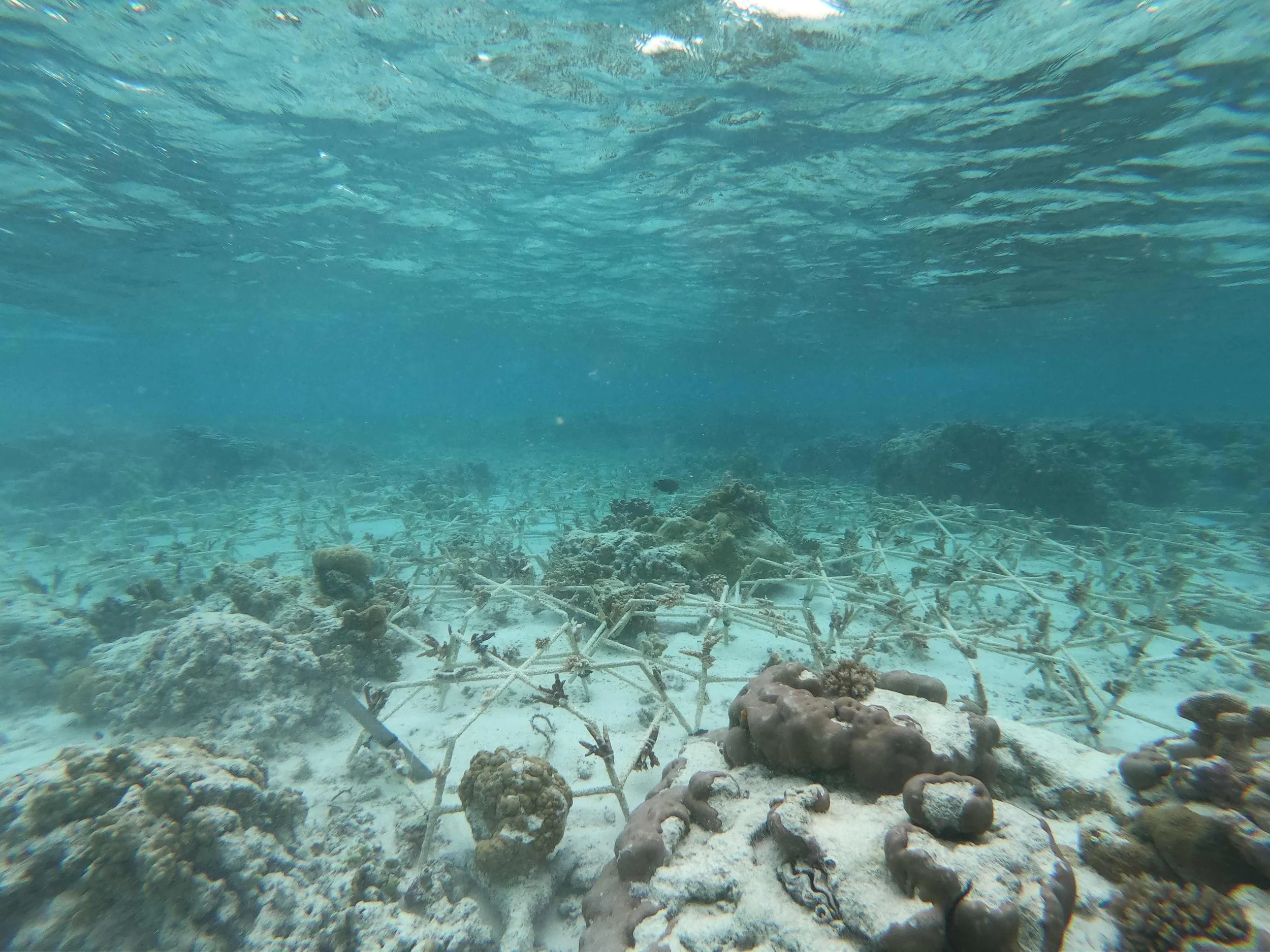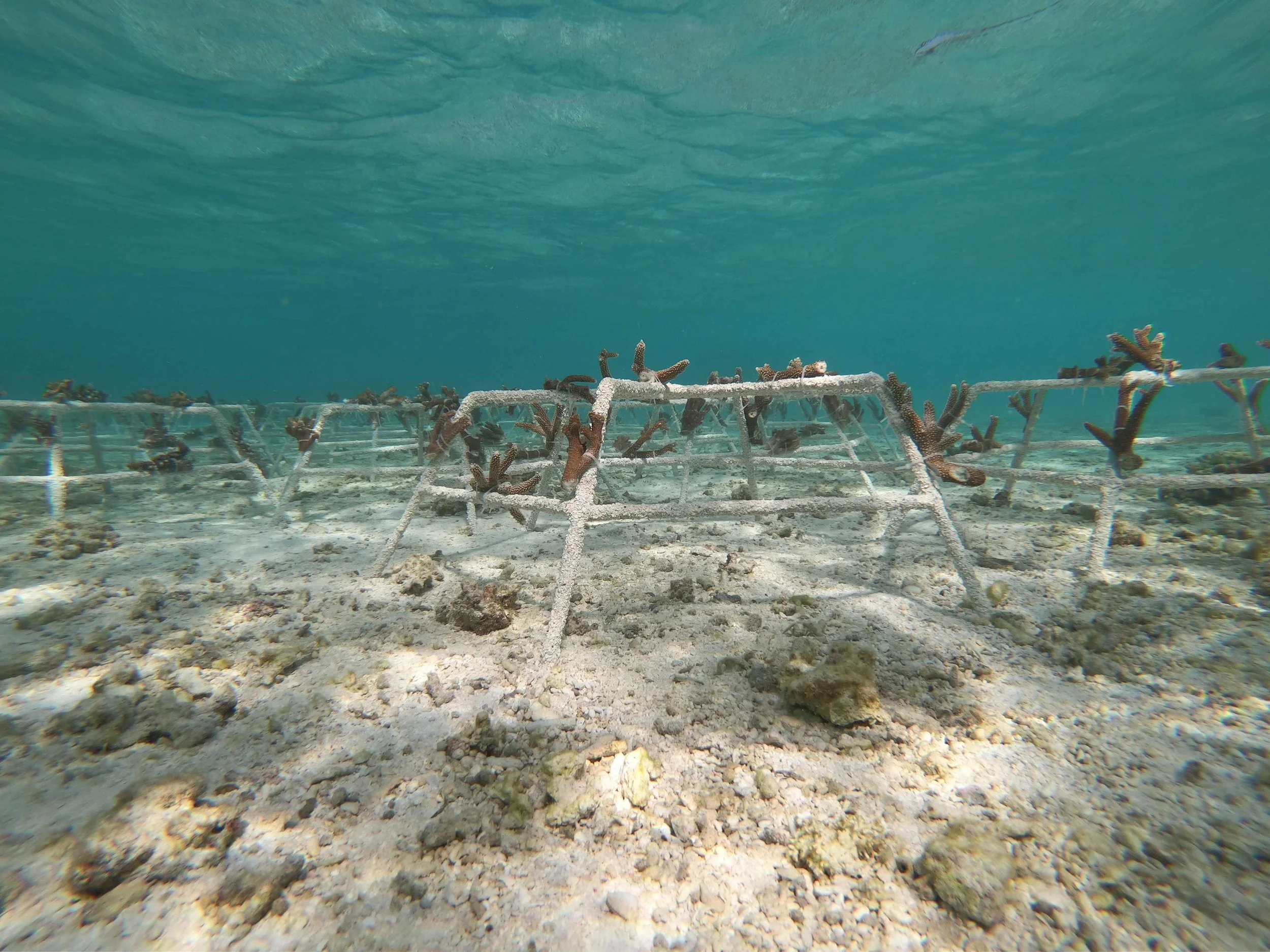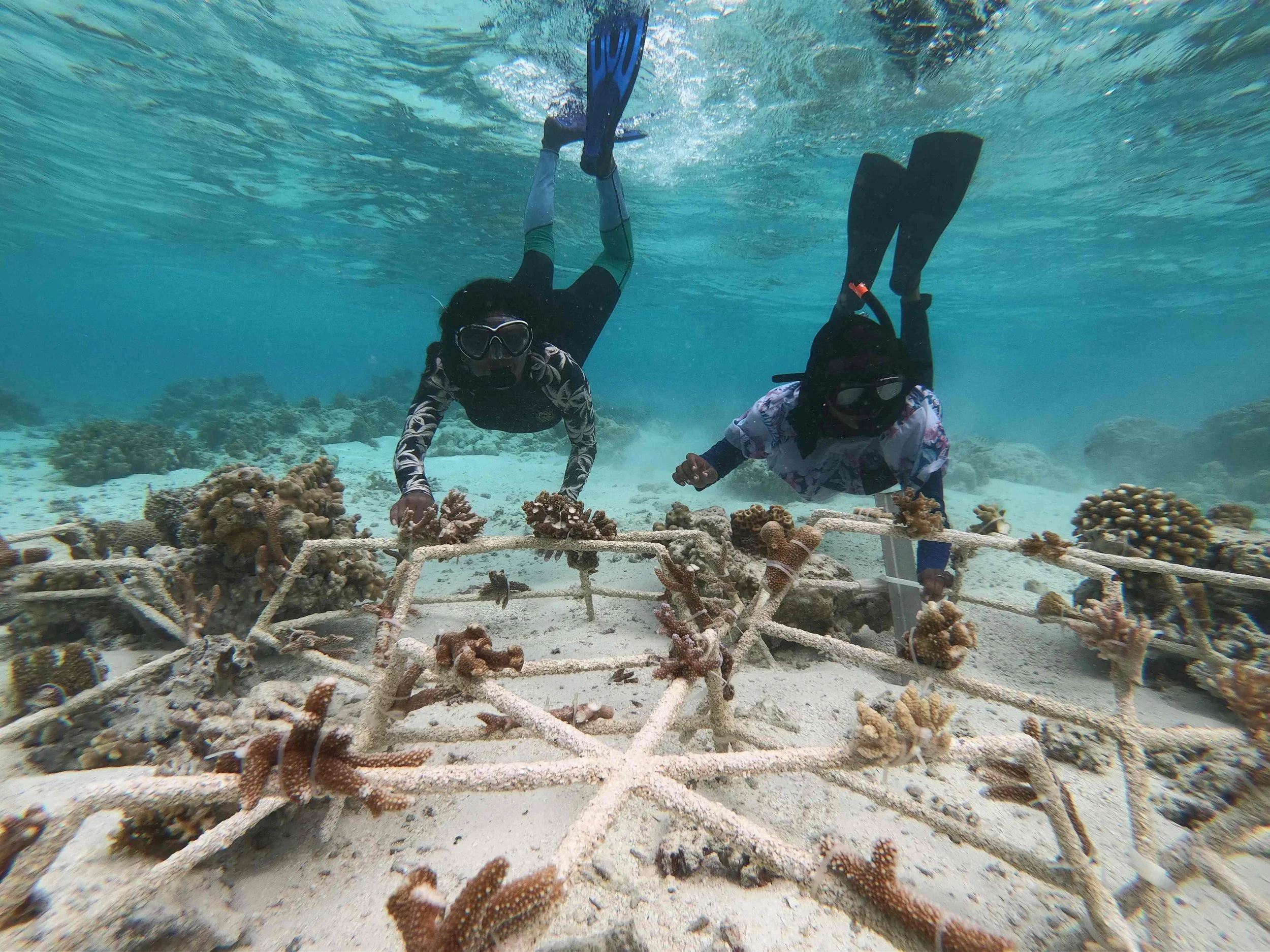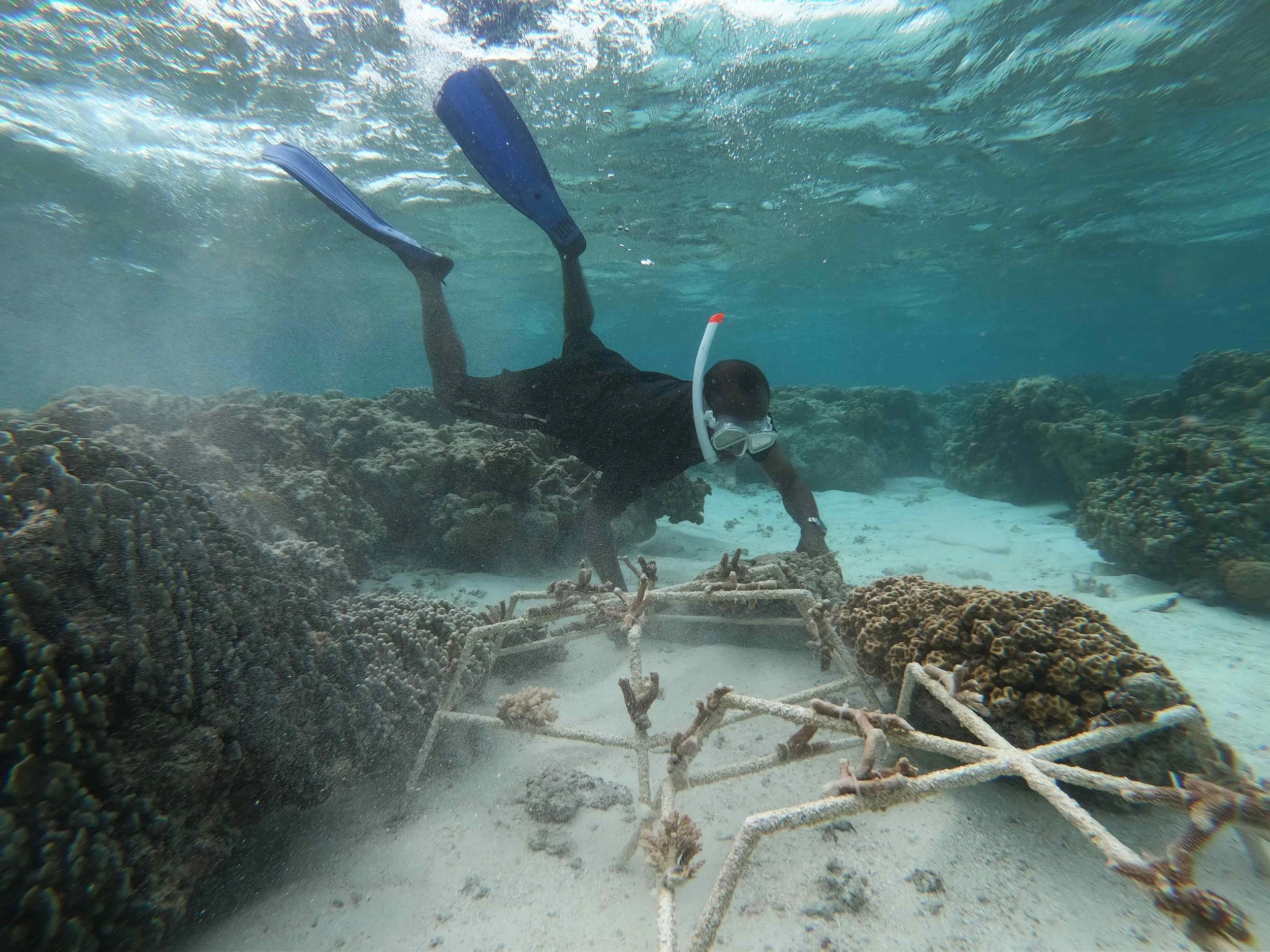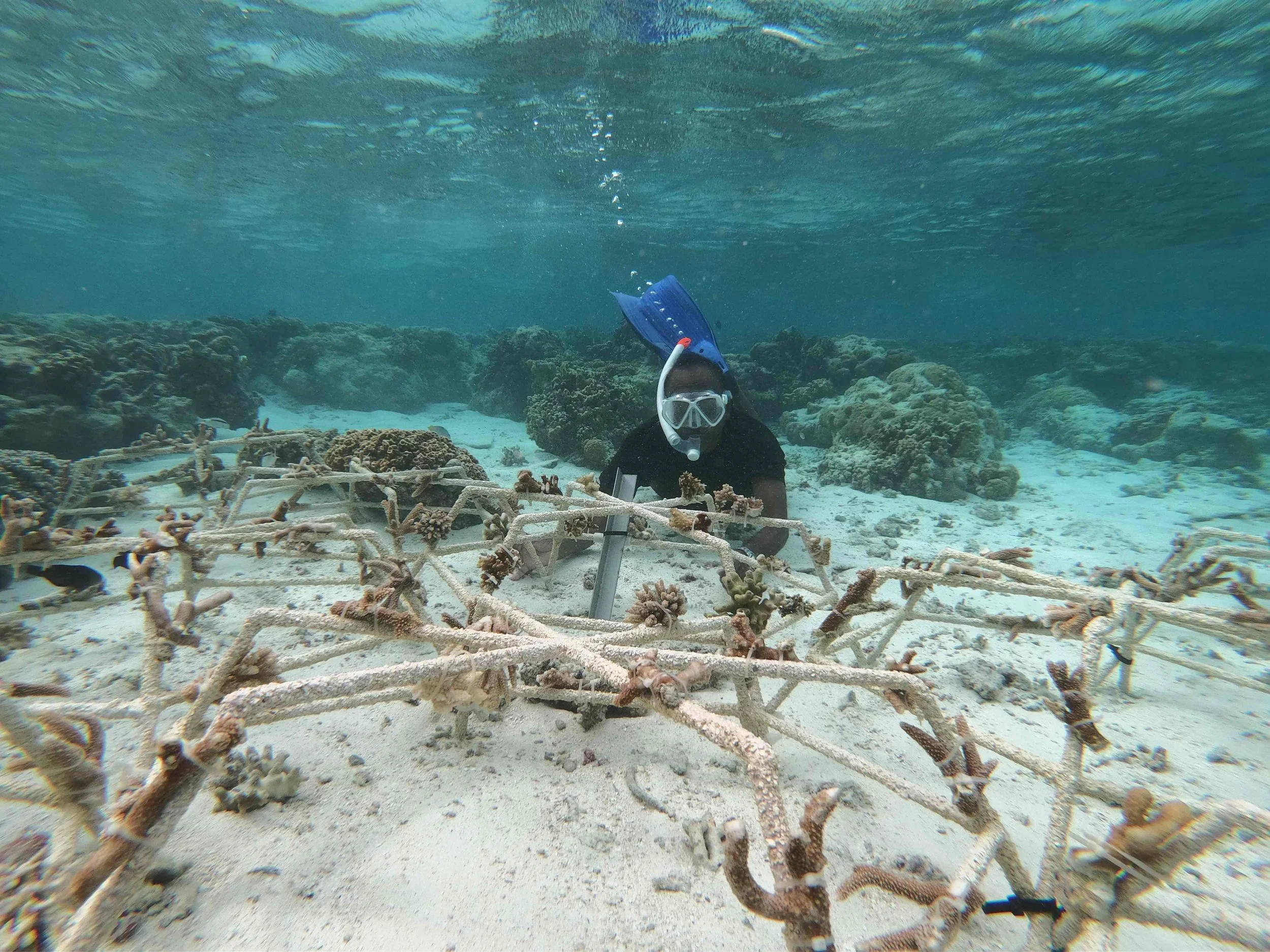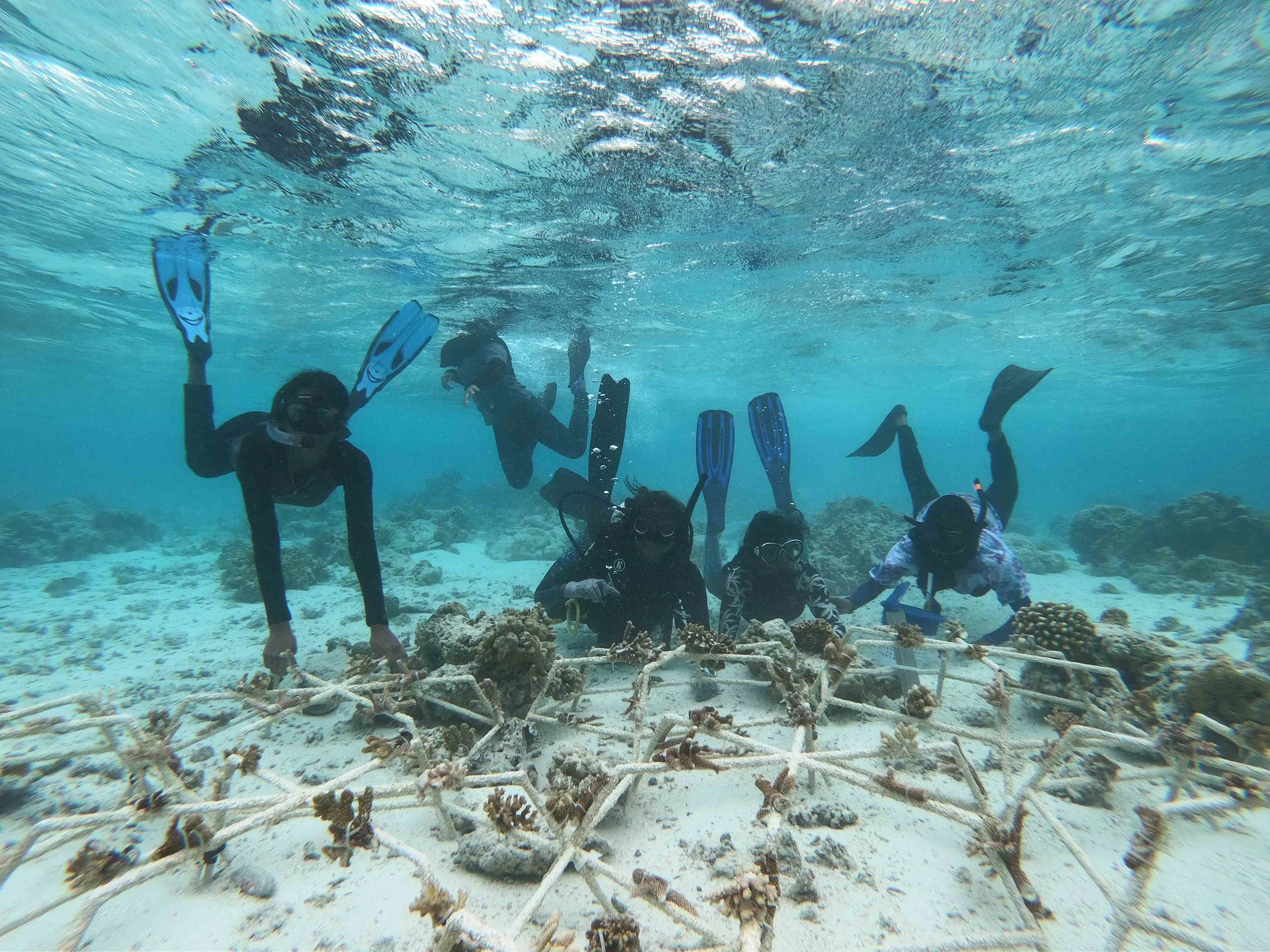Reef video-surveys taken in January 2020 by the Maldives Coral Institute (MCI) in collaboration with Save The Beach Maldives (STBM) showed a diverse coral community on the shallow reef flat along the northern side of the island of Fulhadhoo, in Baa atoll.
The corals appeared to have survived through multiple bleaching events, as well as repetitive total exposure during low tides. This indicates a coral assemblage that has high resilience to thermal stress. In a warming world, where coral reefs are under severe threat of loss and degradation, resilient coral such as those in the reef in Fulhadhoo could act as a seed source to repopulate more vulnerable areas that have high levels of mortality during the increasingly frequent and intense coral bleaching events predicted for the near future.
However, the construction of a harbour at the northern side of the island in early 2020, including the reclamation of an island on the reef flat, caused direct destruction to the coral reef, as well as indirect impacts from the engulfment of sediment plumes and disruption of water flow which led to warmer water on the reef flat. The combination of these effects led to severe degradation and mass death of corals. Given the evidence of coral thermal resilience on Fulhadhoo house reef, and the significance of the extent of damage to the reef, the MCI took action to restore the degraded reef.
The multi-stage project to restore the reef, which started in 2021, is supported by MARS Corporation, who’s philanthropic arm has extensive experience in restoring coral reefs, and has successfully regenerated over 40,000 m2 of reef in the Coral Triangle.
The proffered technique being used in Fulhadhoo is called the Mars Assisted Restoration System (MARRS) — a low technology, community-based restoration system that is capable of rapidly rebuilding reefs in a relatively short period of time. Reefs known to be thermally resilient can be deployed alongside those corals that have demonstrated past resistance to produce a system that may be better equipped to deal with future stressors.
The community is at the heart of the project, and MCI works with the Island Council and has hired people from the island to help develop a sustainable process for the rebuilding and maintaining the island’s coral reef.
On this project we also work with others in the ocean and science community, Maldives National University, Save the Beach Maldives, and diving schools Fehurihi Dive from Fulhadhoo and Kamadhoo Dive from Baa Kamadhoo Island.
The Phase I pilot of this project has been completed, and a video highlighting the work can be seen here.
After the successful pilot phase, Phase II began in August 2022. The initial build and training is complete and the project will continue with further builds to expand the restoration area.






